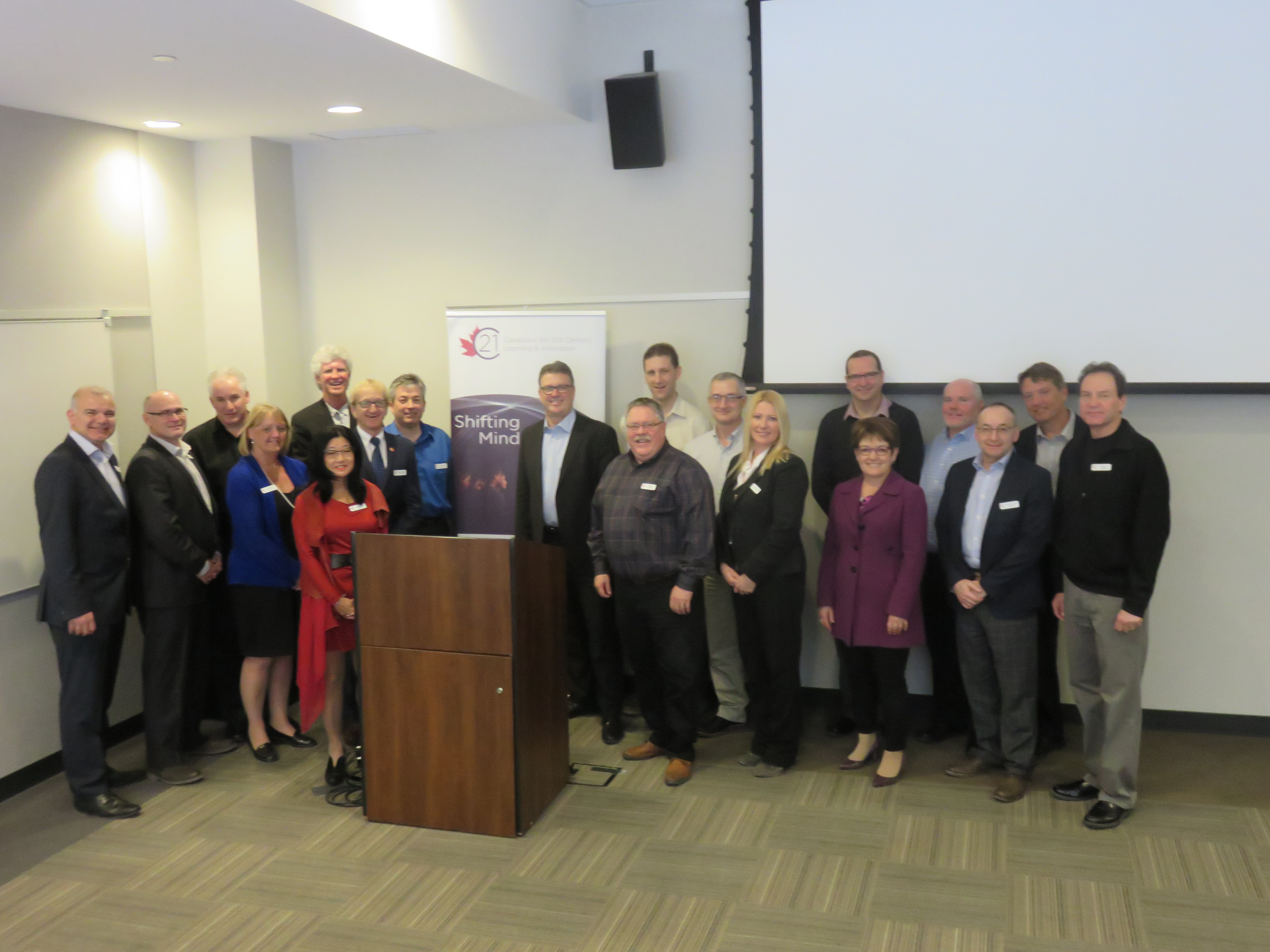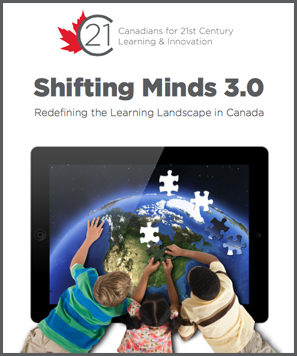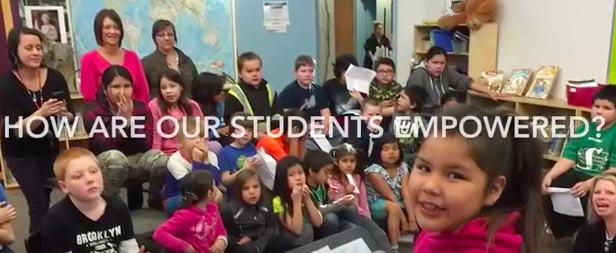 The Learning and Innovation School Pilots have been underway since June 1st and responses began immediately. School pilots completed an on-line inventory of innovative system drivers and C21 7Cs competencies for learning. The online inventory and reporting is being developed in collaboration with C21 Canada Board partner TakingITGlobal. To make learning and innovation visible, schools prepared a media exemplar to illuminate their inventory.
Click to view We are Connaught
Thanks to Jay Nichol, Principal and Randy Fox, Director of Education CEO of Living Sky School Division
The Learning and Innovation School Pilots have been underway since June 1st and responses began immediately. School pilots completed an on-line inventory of innovative system drivers and C21 7Cs competencies for learning. The online inventory and reporting is being developed in collaboration with C21 Canada Board partner TakingITGlobal. To make learning and innovation visible, schools prepared a media exemplar to illuminate their inventory.
Click to view We are Connaught
Thanks to Jay Nichol, Principal and Randy Fox, Director of Education CEO of Living Sky School Division
 The Learning and Innovation School Pilots have been underway since June 1st and responses began immediately. School pilots completed an on-line inventory of innovative system drivers and C21 7Cs competencies for learning. The online inventory and reporting is being developed in collaboration with C21 Canada Board partner TakingITGlobal. To make learning and innovation visible, schools prepared a media exemplar to illuminate their inventory.
Click to view We are Connaught
Thanks to Jay Nichol, Principal and Randy Fox, Director of Education CEO of Living Sky School Division
The Learning and Innovation School Pilots have been underway since June 1st and responses began immediately. School pilots completed an on-line inventory of innovative system drivers and C21 7Cs competencies for learning. The online inventory and reporting is being developed in collaboration with C21 Canada Board partner TakingITGlobal. To make learning and innovation visible, schools prepared a media exemplar to illuminate their inventory.
Click to view We are Connaught
Thanks to Jay Nichol, Principal and Randy Fox, Director of Education CEO of Living Sky School DivisionParkland Village School: Where the World Opens Up Video Blog
|
|
Parkland Village School MicroSocietyⓇ OverviewWhere the World Opens Up |
|
Continuing our work with Alberta Education’s Cross-Curricular Competencies, Inspiring Education and authentic learning, Parkland Village School is exploring providing students with learning opportunities through MicroSocietyⓇ.
MicroSociety replicates Canadian Society. Every student actively participates in MicroSociety in authentic, meaningful ways. This is accomplished as each student takes a role in our society through elected government, government services (police, postal, employment office, etc.), private enterprise or non-governmental organizations. Within each venture there are a variety of positions with varying degrees of responsibility. All students apply for positions, interview, undergo performance assessments, collect wages, manage their own bank account, pay taxes and spend money, just as in the real world. Additionally, there are opportunities for students to: campaign and run for prime minister and members of parliament, hold appointed senate positions, become owners of ventures, managers, and other leadership positions within the context of the day to day MicroSociety operations.
The purpose of providing students with MicroSociety learning experiences is to ensure student driven, engaging, and authentic, personalized learning opportunities for all students. This approach to learning will build an entrepreneurial spirit, ethical citizenship, leadership skills and engaged thinking in our students. Ultimately, MicroSociety will expose our students to greater opportunities for their future while building resiliency, a confidence in themselves to pursue their dreams and to become positive contributing members of society.
Make One Change: Learning Road Trip – A Professional Learning Experience!
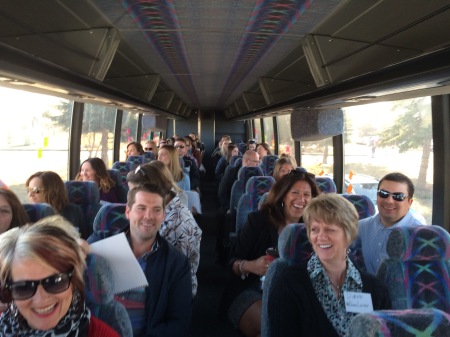 The idea was inspired by the great conversations that happen in the car as you travel to or return from a conference. It’s where all the ideas you have just experienced, or are going to experience, spark conversation about how we can change the system, improve our practice or impact student learning in our classrooms. Its where we dream big, we leverage great ideas, we start to plan for the action we will take once back in our buildings.
What we were after was recreating the road trip experience through a professional learning event. What was developed was a two day opportunity for educators from our division to travel to schools across our jurisdiction, see quality learning in action in a number of settings, and then have the time to develop an idea to bring back to their students in their classrooms. It was called the “Make One Change: Learning Road Trip” and it ended up being a pretty great two days together with a great group of educators.
Day 1 – Learning Road Trip
The idea was inspired by the great conversations that happen in the car as you travel to or return from a conference. It’s where all the ideas you have just experienced, or are going to experience, spark conversation about how we can change the system, improve our practice or impact student learning in our classrooms. Its where we dream big, we leverage great ideas, we start to plan for the action we will take once back in our buildings.
What we were after was recreating the road trip experience through a professional learning event. What was developed was a two day opportunity for educators from our division to travel to schools across our jurisdiction, see quality learning in action in a number of settings, and then have the time to develop an idea to bring back to their students in their classrooms. It was called the “Make One Change: Learning Road Trip” and it ended up being a pretty great two days together with a great group of educators.
Day 1 – Learning Road Trip
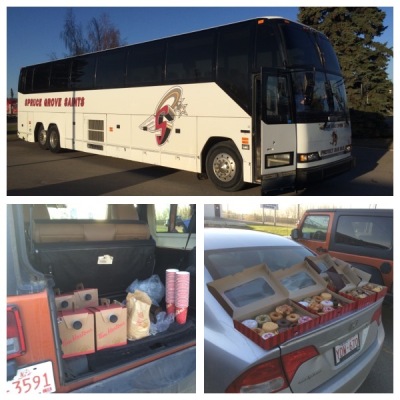 We started off the morning meeting at our division office to board our rented coach bus, with our coffees, muffins/donuts, and materials in hand to embark on our learning road trip. The bus was equipped with televisions (although there were some technical difficulties) which we would use to show some thought provoking videos to spur on conversation while we traveled from school to school. Our videos included a video from Simon Breakspear about “Pursuing Inspiration” which acted as a great intro to our day, as well as videos from Seth Godin, Chris Lehmann, and Mitch Resnick.
We started off the morning meeting at our division office to board our rented coach bus, with our coffees, muffins/donuts, and materials in hand to embark on our learning road trip. The bus was equipped with televisions (although there were some technical difficulties) which we would use to show some thought provoking videos to spur on conversation while we traveled from school to school. Our videos included a video from Simon Breakspear about “Pursuing Inspiration” which acted as a great intro to our day, as well as videos from Seth Godin, Chris Lehmann, and Mitch Resnick.
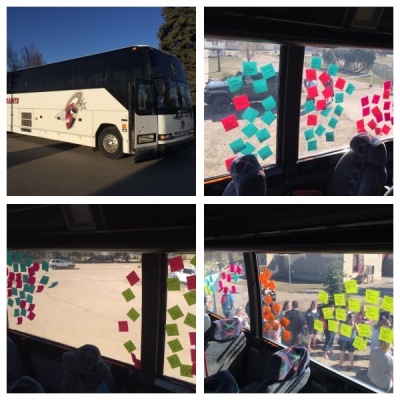 As seat-mates engaged in conversations about learning, they wrote down big ideas, inspirations and extensions that came up on to Post-Its and placed them on the windows of the bus to collect them throughout the day. These would serve to inspire the work on Day #2 and were available to connect with new ideas throughout the trip. It was exciting to see the spaces fill with ideas throughout the day as our participants were inspired by the school visits. We also tweeted to the hashtag #make1changePSD throughout the two day event (Storify to come!).
As seat-mates engaged in conversations about learning, they wrote down big ideas, inspirations and extensions that came up on to Post-Its and placed them on the windows of the bus to collect them throughout the day. These would serve to inspire the work on Day #2 and were available to connect with new ideas throughout the trip. It was exciting to see the spaces fill with ideas throughout the day as our participants were inspired by the school visits. We also tweeted to the hashtag #make1changePSD throughout the two day event (Storify to come!).
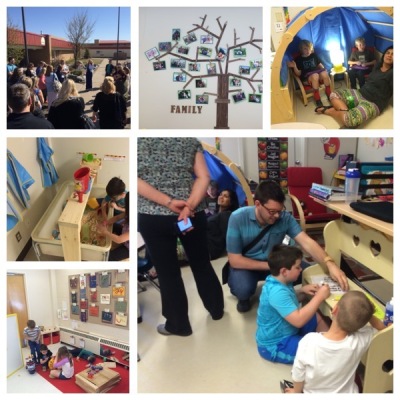 Our participants represented K-12 educators from almost every school in our division, and we were able to visit K-12 classrooms in four schools. We saw maker-inspired learning, literacy centres, differentiated instruction in multi-grade classrooms, personalized learning, critical thinking exercises and so much more. It was so great to have the administration, staffs and students of Parkland Village School (K-4), Memorial Composite High School (10-12), Blueberry School (K-9), and Seba Beach School (K-9) welcome in our group of 40+ to see the learning in action in their buildings. The experiences in each building served to get our participants thinking of what it was they would develop on Day #2 to “Make One Change” in their practice to impact student learning in their buildings.
Day 2 – Educator Innovation Day
Our participants represented K-12 educators from almost every school in our division, and we were able to visit K-12 classrooms in four schools. We saw maker-inspired learning, literacy centres, differentiated instruction in multi-grade classrooms, personalized learning, critical thinking exercises and so much more. It was so great to have the administration, staffs and students of Parkland Village School (K-4), Memorial Composite High School (10-12), Blueberry School (K-9), and Seba Beach School (K-9) welcome in our group of 40+ to see the learning in action in their buildings. The experiences in each building served to get our participants thinking of what it was they would develop on Day #2 to “Make One Change” in their practice to impact student learning in their buildings.
Day 2 – Educator Innovation Day
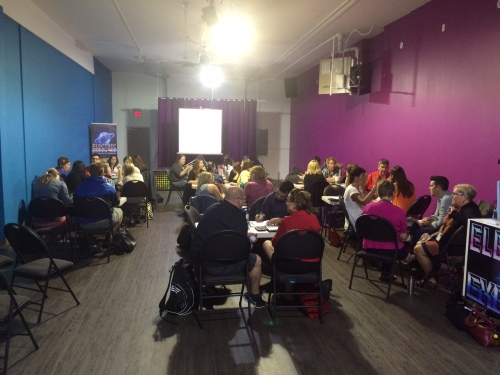 On Day 2 we met at the 360 degree Wellness Centre (Thanks for the room Ken!) in Spruce Grove to embark on an Educator Innovation Day and create the initiative, project or intervention that would be the one change we would bring to our students. We worked through a Design Thinking process that members of our group adopted from Ewan McIntosh, a process that involves four phases – Immersion, Synthesis, Ideation and Prototyping. The Learning Road Trip acted as the bulk of the immersion phase, but we finished up the immersion phase with interviews to understand our group members thoughts and aspirations for their projects. From there, driving questions were developed in the Synthesis phase, carefully crafted to drive the ideation phase and worded as “How might we…” questions. In the Ideation phase, our participants were challenged to come up with as many potential ideas as they could in a ten minute period, with the group developing nearly a thousand ideas! Groups sketched out visual representations of their ideas in the Prototyping phase and arrived at a place where they could get to work on their projects.
The rest of the day was used to work on the projects, with groups accessing resources, planning out lessons and developing learning experiences to bring to their students. The final hour involved groups sharing their projects, and processes, with each other and discussing the inspiration and plan for action behind their “One Change”. Our plan is to come together again as a group on May 11th to check-in on where the projects are in their development, to share successes and look to solve challenges that have emerged and keep the momentum going!
Overall it was a great experience, and it was so much fun to work with Carolyn Cameron, Travis McNaughton, and Shaye Patras to develop this professional learning experience for our division. We have surveyed our participants, and will look to gain feedback from schools as to the impact of this event, as we hope to bring more of these “Learning Road Trips” to the teachers of our division. We have a lot of ideas already bubbling up about different ways we can leverage this model and can’t wait to start planning the next one.
Thanks again to the schools who hosted us, to the participants for their engagement and enthusiasm (even on the hot bus), to the organizers and to everyone who contributed to making this day a success.
On Day 2 we met at the 360 degree Wellness Centre (Thanks for the room Ken!) in Spruce Grove to embark on an Educator Innovation Day and create the initiative, project or intervention that would be the one change we would bring to our students. We worked through a Design Thinking process that members of our group adopted from Ewan McIntosh, a process that involves four phases – Immersion, Synthesis, Ideation and Prototyping. The Learning Road Trip acted as the bulk of the immersion phase, but we finished up the immersion phase with interviews to understand our group members thoughts and aspirations for their projects. From there, driving questions were developed in the Synthesis phase, carefully crafted to drive the ideation phase and worded as “How might we…” questions. In the Ideation phase, our participants were challenged to come up with as many potential ideas as they could in a ten minute period, with the group developing nearly a thousand ideas! Groups sketched out visual representations of their ideas in the Prototyping phase and arrived at a place where they could get to work on their projects.
The rest of the day was used to work on the projects, with groups accessing resources, planning out lessons and developing learning experiences to bring to their students. The final hour involved groups sharing their projects, and processes, with each other and discussing the inspiration and plan for action behind their “One Change”. Our plan is to come together again as a group on May 11th to check-in on where the projects are in their development, to share successes and look to solve challenges that have emerged and keep the momentum going!
Overall it was a great experience, and it was so much fun to work with Carolyn Cameron, Travis McNaughton, and Shaye Patras to develop this professional learning experience for our division. We have surveyed our participants, and will look to gain feedback from schools as to the impact of this event, as we hope to bring more of these “Learning Road Trips” to the teachers of our division. We have a lot of ideas already bubbling up about different ways we can leverage this model and can’t wait to start planning the next one.
Thanks again to the schools who hosted us, to the participants for their engagement and enthusiasm (even on the hot bus), to the organizers and to everyone who contributed to making this day a success.C21 Canada Board Member Krista Jones Featured in the Financial Post – What millennials really want from employers
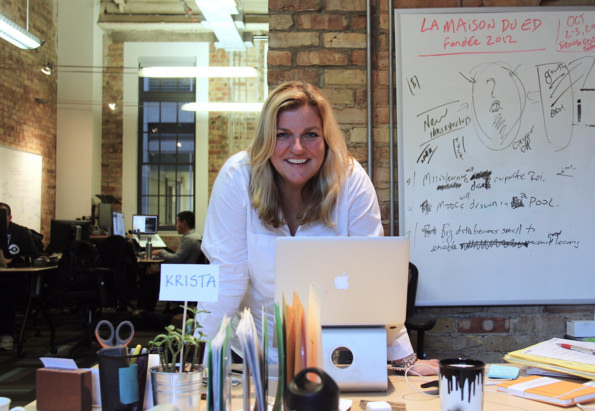
In her recent Financial Post article, Krista Jones, Lead Executive for the Work and Learning Cluster at MaRs offers valuable insights to emerging trends among millennials and their attitude towards work. Skills and training programs are deemed highly desirable when seeking employment. We face a potential skills and generation gap that can be filled through the use of tech and just in time training suggests Jones. Boomers in management positions need to be especially mindful of the the unique values and expectations that millennials share. How is your organization adapting to new millennial worker? The following is a link to the full story. Robert Martellacci, VP & Co-Founder, C21 Canada
Denise Andre, Director of Education, Ottawa Catholic SB Joins C21 CEO Academy Board
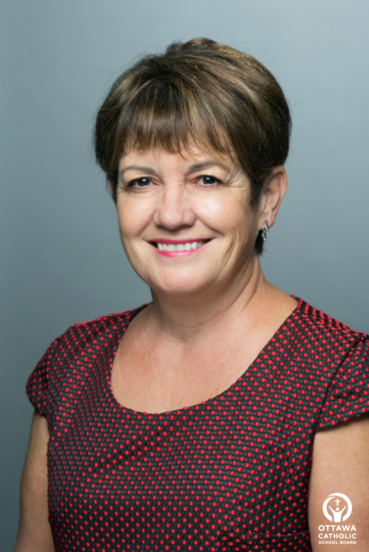 Denise Andre is the Director of Education and Secretary Treasurer of the Ottawa Catholic School Board. She has been with the Ottawa Catholic School Board for over 35 years serving as a teacher, department head, vice-principal, principal, superintendent, and deputy (associate) director.Denise holds a Masters of Education and a Bachelor of Education from the University of Ottawa and a Bachelor of Arts from Carleton University. Denise spent her early days in Cornwall, and has been married for over 30 years.
Denise Andre is the Director of Education and Secretary Treasurer of the Ottawa Catholic School Board. She has been with the Ottawa Catholic School Board for over 35 years serving as a teacher, department head, vice-principal, principal, superintendent, and deputy (associate) director.Denise holds a Masters of Education and a Bachelor of Education from the University of Ottawa and a Bachelor of Arts from Carleton University. Denise spent her early days in Cornwall, and has been married for over 30 years.C21 Podcast with Dr. Dennis Sumara, Dean Werklund Faculty of Education, University of Calgary, reflects on receiving the C21 Canada Shifting Minds Award
 Dr. Dennis Sumara is currently Professor and Dean of the Werklund School of Education at the University of Calgary. Prior to this appointment he held administrative and academic appointments at University of British Columbia, University of Alberta, York University and Simon Fraser University.
Dr. Dennis Sumara is currently Professor and Dean of the Werklund School of Education at the University of Calgary. Prior to this appointment he held administrative and academic appointments at University of British Columbia, University of Alberta, York University and Simon Fraser University.
Is There a Future for Computers in Schools? Exclusive Podcast with Andreas Schleicher on the recent OECD Education Report on ICT
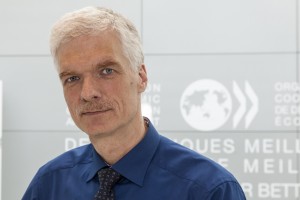 Andreas Schleicher is Director for Education and Skills, and Special Advisor on Education Policy to the Secretary-General at the Organisation for Economic Co-operation and Development (OECD) in Paris.
Before joining the OECD, Mr. Schleicher was Director for Analysis at the International Association for Educational Ahievement (IEA).
He studied Physics in Germany and received a degree in Mathematics and Statistics in Australia. He is the recipient of numerous honours and awards, including the “Theodor Heuss” prize, awarded in the name of the first president of the Federal Republic of Germany for “exemplary democratic engagement”. He holds an honorary Professorship at the University of Heidelberg.
Andreas Schleicher is Director for Education and Skills, and Special Advisor on Education Policy to the Secretary-General at the Organisation for Economic Co-operation and Development (OECD) in Paris.
Before joining the OECD, Mr. Schleicher was Director for Analysis at the International Association for Educational Ahievement (IEA).
He studied Physics in Germany and received a degree in Mathematics and Statistics in Australia. He is the recipient of numerous honours and awards, including the “Theodor Heuss” prize, awarded in the name of the first president of the Federal Republic of Germany for “exemplary democratic engagement”. He holds an honorary Professorship at the University of Heidelberg.C21 Canada is thrilled to welcome new board members
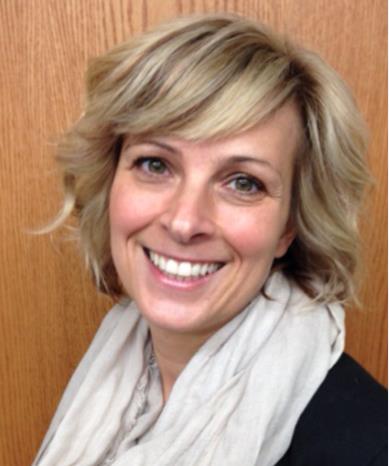 Dr. Gina Cherkowski
Co-Founder & Director of Learning
Stem Learning Labs
Dr. Gina Cherkowski has a Masters in Teaching At-Risk Youth, with a double cognate Ph. D. in Mathematics Education and Culture Studies.
Dr. Cherkowski is a sessional instructor at the University of Calgary in STEM Education for preservice secondary teachers equipping them with the skills, tools and mindsets they need to inspire and educate the problems solvers, creative thinkers, and innovators of tomorrow. Gina’s specialty is teaching future teachers how to use robotics and technology in the classroom to create rich, meaningful learning experiences across the STEM disciplines.
Dr. Cherkowski has co-created and teaches a graduate level course called “Creativity Across the Disciplines” where she works with practicing educators and leaders in developing their creative capacity to design, explore and put into practice innovative new ways to teach STEM and Enterprise in the 21st Century.
Dr. Cherkowski’s passion is to ensure that ALL kids have the opportunity to experience opportunities for high level learning and success on their learning journeys. In her research with MIND Research Institute from California, Dr. Cherkowski examines the impact of using digital technology to teach math visually for students who traditionally struggle in the math classroom. Dr. Cherkowski is a member of STEM Alberta, The Global STEM States, and is the founder and CEO of STEM Learning Lab where she shares her passion for ensuring all kids are aptly positioned for success in today’s fast paced, technology driven, data rich world.
Dr. Gina Cherkowski
Co-Founder & Director of Learning
Stem Learning Labs
Dr. Gina Cherkowski has a Masters in Teaching At-Risk Youth, with a double cognate Ph. D. in Mathematics Education and Culture Studies.
Dr. Cherkowski is a sessional instructor at the University of Calgary in STEM Education for preservice secondary teachers equipping them with the skills, tools and mindsets they need to inspire and educate the problems solvers, creative thinkers, and innovators of tomorrow. Gina’s specialty is teaching future teachers how to use robotics and technology in the classroom to create rich, meaningful learning experiences across the STEM disciplines.
Dr. Cherkowski has co-created and teaches a graduate level course called “Creativity Across the Disciplines” where she works with practicing educators and leaders in developing their creative capacity to design, explore and put into practice innovative new ways to teach STEM and Enterprise in the 21st Century.
Dr. Cherkowski’s passion is to ensure that ALL kids have the opportunity to experience opportunities for high level learning and success on their learning journeys. In her research with MIND Research Institute from California, Dr. Cherkowski examines the impact of using digital technology to teach math visually for students who traditionally struggle in the math classroom. Dr. Cherkowski is a member of STEM Alberta, The Global STEM States, and is the founder and CEO of STEM Learning Lab where she shares her passion for ensuring all kids are aptly positioned for success in today’s fast paced, technology driven, data rich world.
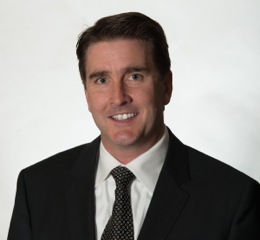 Thom Leiper
Thom is the VP of Sales and Learning Solutions at Nelson Education Ltd. He has twenty years of seniorsales leadership experience within the North American technology industry including the last eight years in national sales roles at Apple Canada and Nelson Education. A passionate leader committed to delivering innovative hardware and software solutions within the K12 learning environment, Thom provides a unique perspective on the creation of engaging content within the ever-changing world of education technology.
Thom Leiper
Thom is the VP of Sales and Learning Solutions at Nelson Education Ltd. He has twenty years of seniorsales leadership experience within the North American technology industry including the last eight years in national sales roles at Apple Canada and Nelson Education. A passionate leader committed to delivering innovative hardware and software solutions within the K12 learning environment, Thom provides a unique perspective on the creation of engaging content within the ever-changing world of education technology.
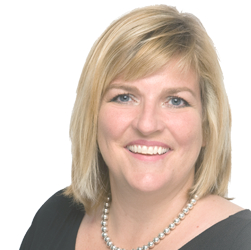 Krista Jones
Krista is the senior advisor & lead of the EdTech cluster at MaRS. She has been a passionate innovator and builder of technology-based businesses since 1988. As an engineer, entrepreneur, mentor, she is known for her comprehensive knowledge of existing and emerging ICE technologies and architectures. To date, Krista has personally advised over 350 startups and worked with 1,300 ventures in the ICE industries. Krista and her husband owned a children’s technology educational franchise that fostered early innovation and creativity in robotics, animation, digital art and video game design.
Krista Jones
Krista is the senior advisor & lead of the EdTech cluster at MaRS. She has been a passionate innovator and builder of technology-based businesses since 1988. As an engineer, entrepreneur, mentor, she is known for her comprehensive knowledge of existing and emerging ICE technologies and architectures. To date, Krista has personally advised over 350 startups and worked with 1,300 ventures in the ICE industries. Krista and her husband owned a children’s technology educational franchise that fostered early innovation and creativity in robotics, animation, digital art and video game design.National Principals Leadership Institute – Designing Schools for the Future
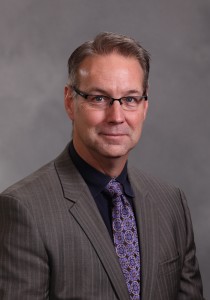 Written by Chris Smeaton, Superintendent for Holy Spirit Catholic Schools /C21 Canada CEO Academy Member.
This past summer, I was invited as a member of C21 Canada to attend the National Principals Leadership Institute in New York. The invitation provided for a presentation on the work of C21 Canada as well as an opportunity to serve as a leadership consultant to school and system leaders from across North America. The theme of the institute was designing schools for the future with a target date of 2040. One of the advantages I had as a Canadian Superintendent was my intimate knowledge of the work done in my home province of Alberta with Inspiring Education. The document that accompanies this path forward, focuses on preparing students for the year 2030 to be engaged thinkers, ethical citizens with an entrepreneurial spirit. This information assisted me in my work with participants as well as reaffirmed the work we are currently doing in my own school division.
The structure of the Institute was its greatest strength. Each morning a keynote presentation set the stage for the sub theme of the day. The keynote presenters were not directly connected to the K-12 education system and therefore, gave a unique perspective on designing schools for the future. Two panels followed, with the first addressing the keynote presentation while the second provided implications to schools. The addition of the panel that addressed the implications in education drove home the importance of thinking beyond our own paradigm to truly design schools that will meet the needs of future generations.
There were a variety of futuristic topics, from urban planning to innovation, which laid a strong foundation for the team planning sessions in the afternoon. Participants were divided up into teams with the end result being the design and presentation of their school for the year 2040. Given our understanding that communication, critical thinking, creativity and collaboration are essential for student success in today’s ever changing world, the team format allowed administrators to live the experience we want in our classrooms.
The resulting projects were outstanding and more importantly doable. Although technology was leveraged in the future schools, it was not the dominate design. Common sense prevailed and a keen sense of current research on child development, teaching and learning. Innovation wasn’t simply categorized by technology but often it was by doing something different, perhaps more efficiently, more effectively or more deliberately. Multi-age classrooms, project based learning, common assessments and a mentality of learning for all where evident in all futuristic schools.
For some, including those (should be) common staples of education into future schools may be disappointing. But it seems that putting our vision of education into the Star Trek world of teleportation is just too far-fetched. The challenge is letting technology serve us better in what we know about child development, teaching and learning. The frustration is in the knowing-doing gap; already knowing what we need to do but not doing it beyond the pockets of excellence that exist around the world. The presence of members from the C21 Canada Leadership Academy at the Institute provided some direction on moving from pockets of excellence to scaling out and scaling up. The latest publication, Shifting Minds 3.0 Redefining the Learning Landscape in Canada pursues a dual strategy of both improvement and innovation that is required to both maintain stability and enable forward momentum.
Designing schools for the future is about improvement and innovation. It is about challenging assumptions and beliefs and confronting the brutal facts. It will be messy and on a road less travelled. But it is what students deserve and what committed educators desire and that was evident throughout the Institute.
Many thanks to Lew Smith and Jann Coles from NPLI for the invitation and to all the leaders who I had the pleasure to work with during my time in New York! Best of luck in beginning your 2040 design today!
Written by Chris Smeaton, Superintendent for Holy Spirit Catholic Schools /C21 Canada CEO Academy Member.
This past summer, I was invited as a member of C21 Canada to attend the National Principals Leadership Institute in New York. The invitation provided for a presentation on the work of C21 Canada as well as an opportunity to serve as a leadership consultant to school and system leaders from across North America. The theme of the institute was designing schools for the future with a target date of 2040. One of the advantages I had as a Canadian Superintendent was my intimate knowledge of the work done in my home province of Alberta with Inspiring Education. The document that accompanies this path forward, focuses on preparing students for the year 2030 to be engaged thinkers, ethical citizens with an entrepreneurial spirit. This information assisted me in my work with participants as well as reaffirmed the work we are currently doing in my own school division.
The structure of the Institute was its greatest strength. Each morning a keynote presentation set the stage for the sub theme of the day. The keynote presenters were not directly connected to the K-12 education system and therefore, gave a unique perspective on designing schools for the future. Two panels followed, with the first addressing the keynote presentation while the second provided implications to schools. The addition of the panel that addressed the implications in education drove home the importance of thinking beyond our own paradigm to truly design schools that will meet the needs of future generations.
There were a variety of futuristic topics, from urban planning to innovation, which laid a strong foundation for the team planning sessions in the afternoon. Participants were divided up into teams with the end result being the design and presentation of their school for the year 2040. Given our understanding that communication, critical thinking, creativity and collaboration are essential for student success in today’s ever changing world, the team format allowed administrators to live the experience we want in our classrooms.
The resulting projects were outstanding and more importantly doable. Although technology was leveraged in the future schools, it was not the dominate design. Common sense prevailed and a keen sense of current research on child development, teaching and learning. Innovation wasn’t simply categorized by technology but often it was by doing something different, perhaps more efficiently, more effectively or more deliberately. Multi-age classrooms, project based learning, common assessments and a mentality of learning for all where evident in all futuristic schools.
For some, including those (should be) common staples of education into future schools may be disappointing. But it seems that putting our vision of education into the Star Trek world of teleportation is just too far-fetched. The challenge is letting technology serve us better in what we know about child development, teaching and learning. The frustration is in the knowing-doing gap; already knowing what we need to do but not doing it beyond the pockets of excellence that exist around the world. The presence of members from the C21 Canada Leadership Academy at the Institute provided some direction on moving from pockets of excellence to scaling out and scaling up. The latest publication, Shifting Minds 3.0 Redefining the Learning Landscape in Canada pursues a dual strategy of both improvement and innovation that is required to both maintain stability and enable forward momentum.
Designing schools for the future is about improvement and innovation. It is about challenging assumptions and beliefs and confronting the brutal facts. It will be messy and on a road less travelled. But it is what students deserve and what committed educators desire and that was evident throughout the Institute.
Many thanks to Lew Smith and Jann Coles from NPLI for the invitation and to all the leaders who I had the pleasure to work with during my time in New York! Best of luck in beginning your 2040 design today!Shifting Minds 1.0: A 21st Century Vision of Public Education for Canada
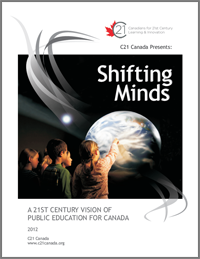
Transformer Les Esprits: L’Enseignement public du Canada une vision pour le XXIe siècle
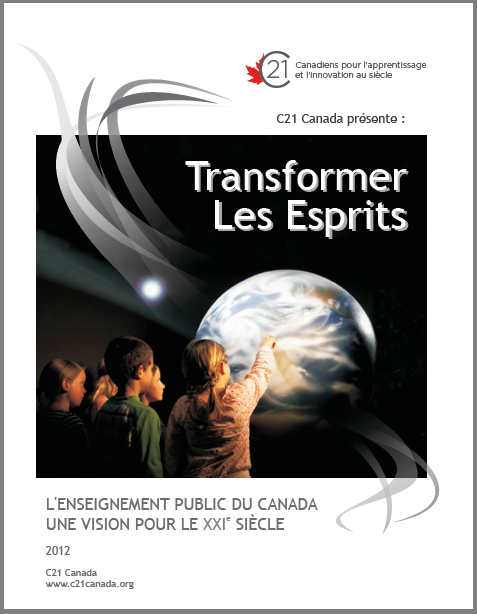
Photostream
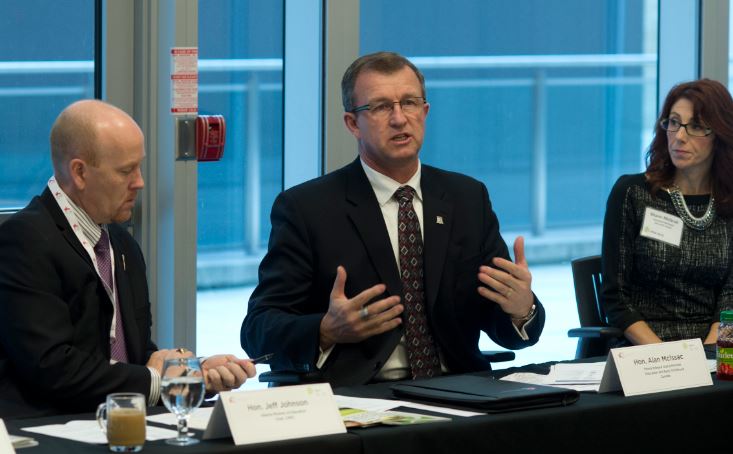
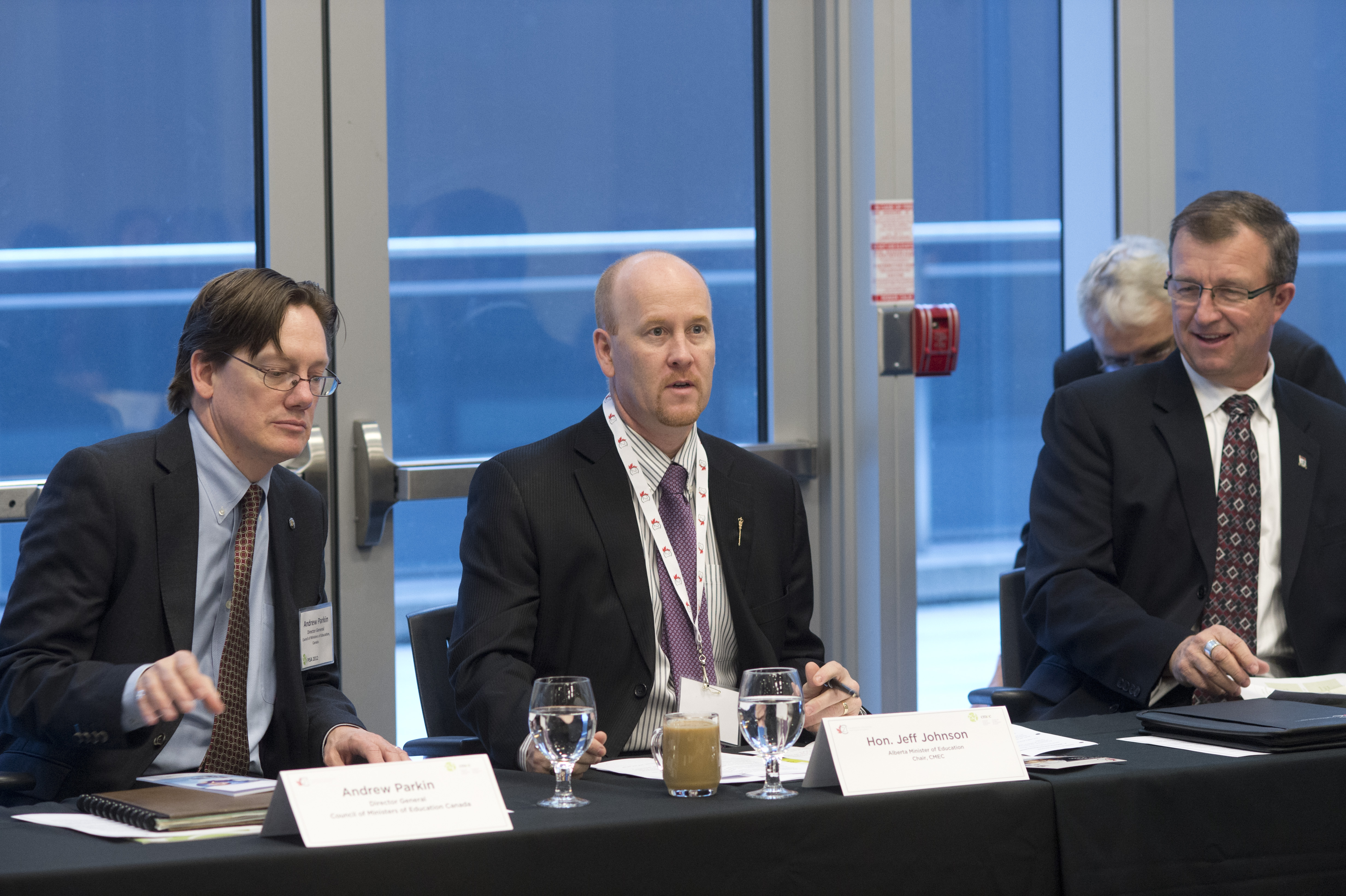
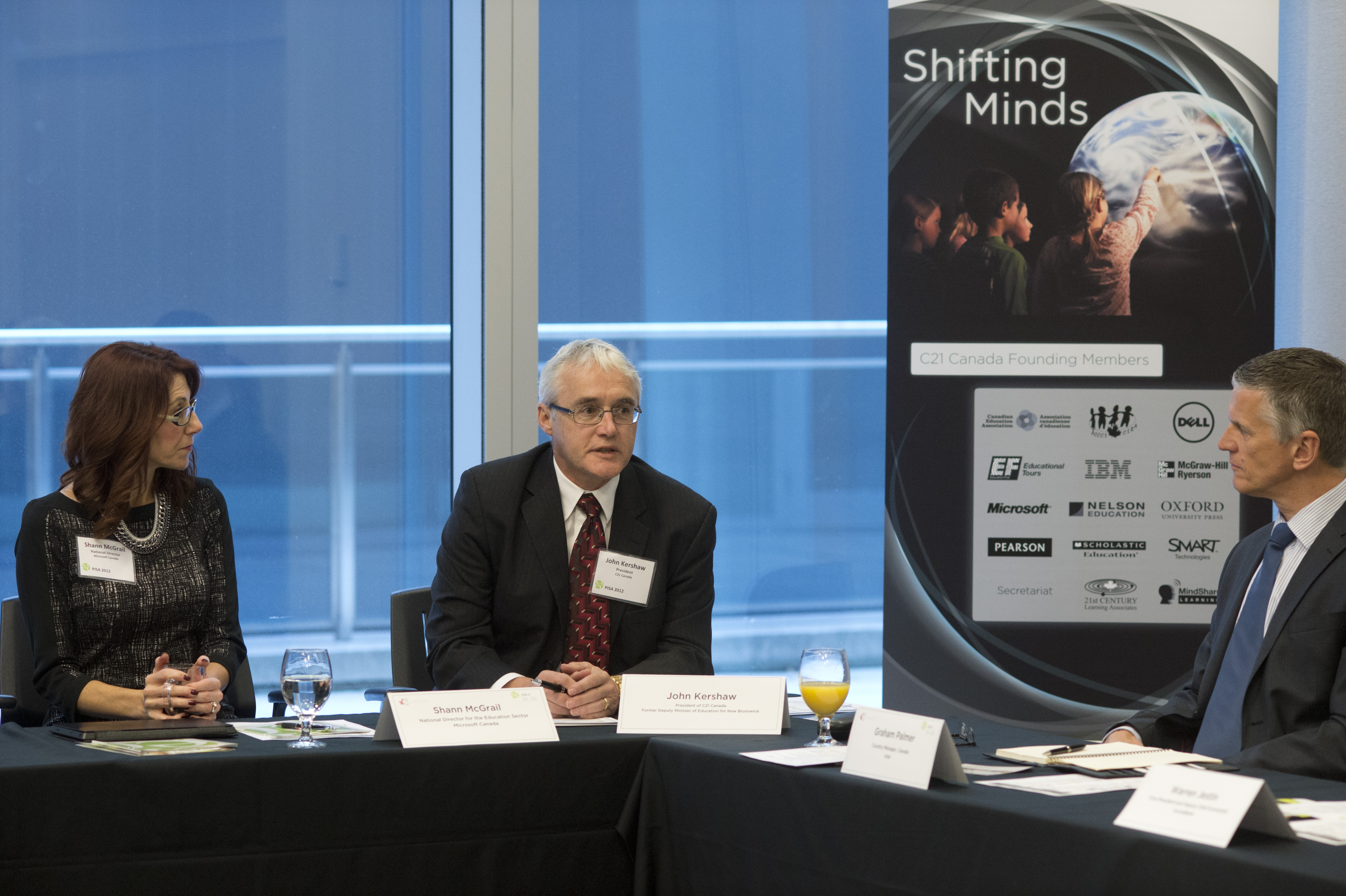
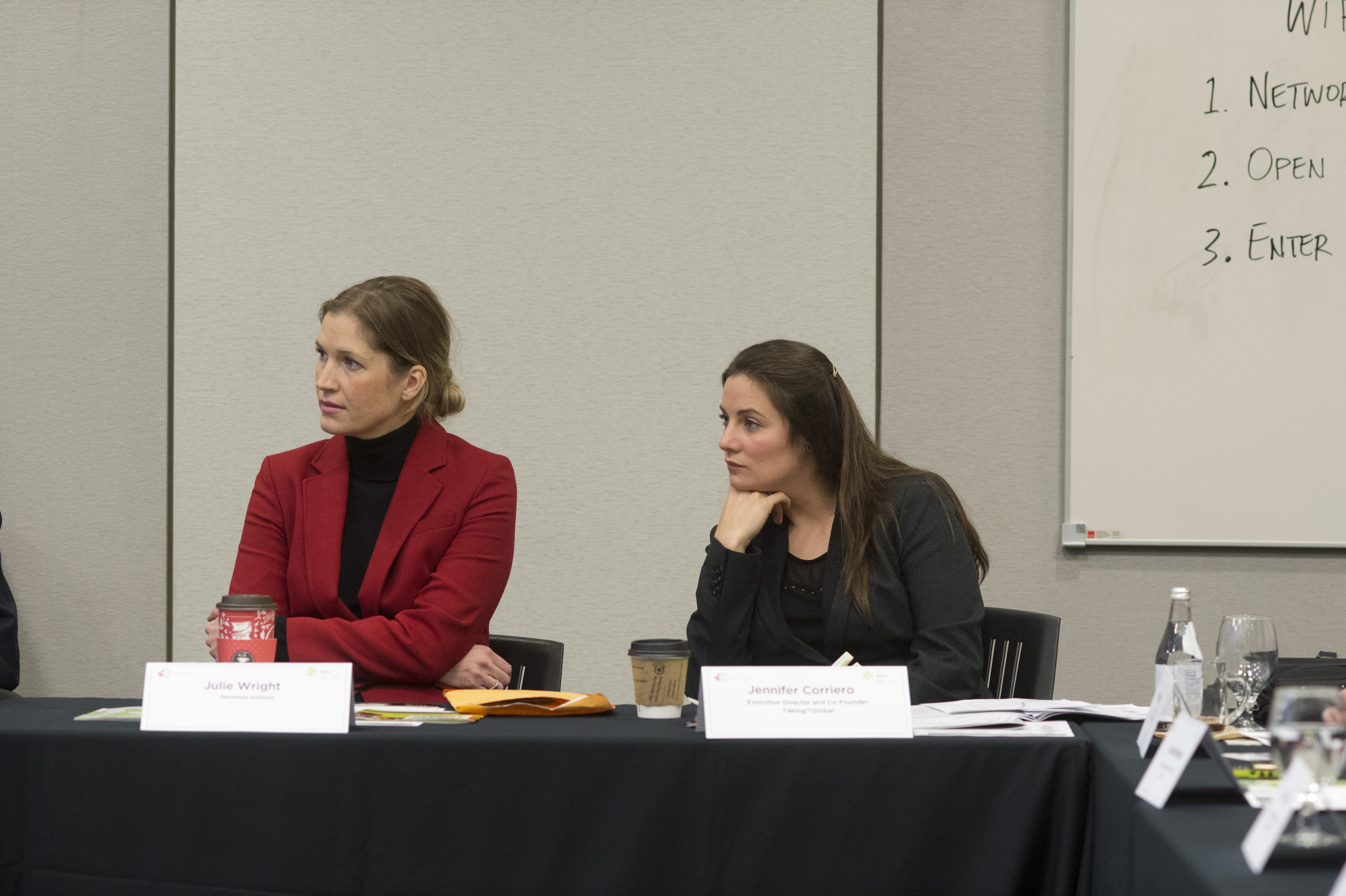
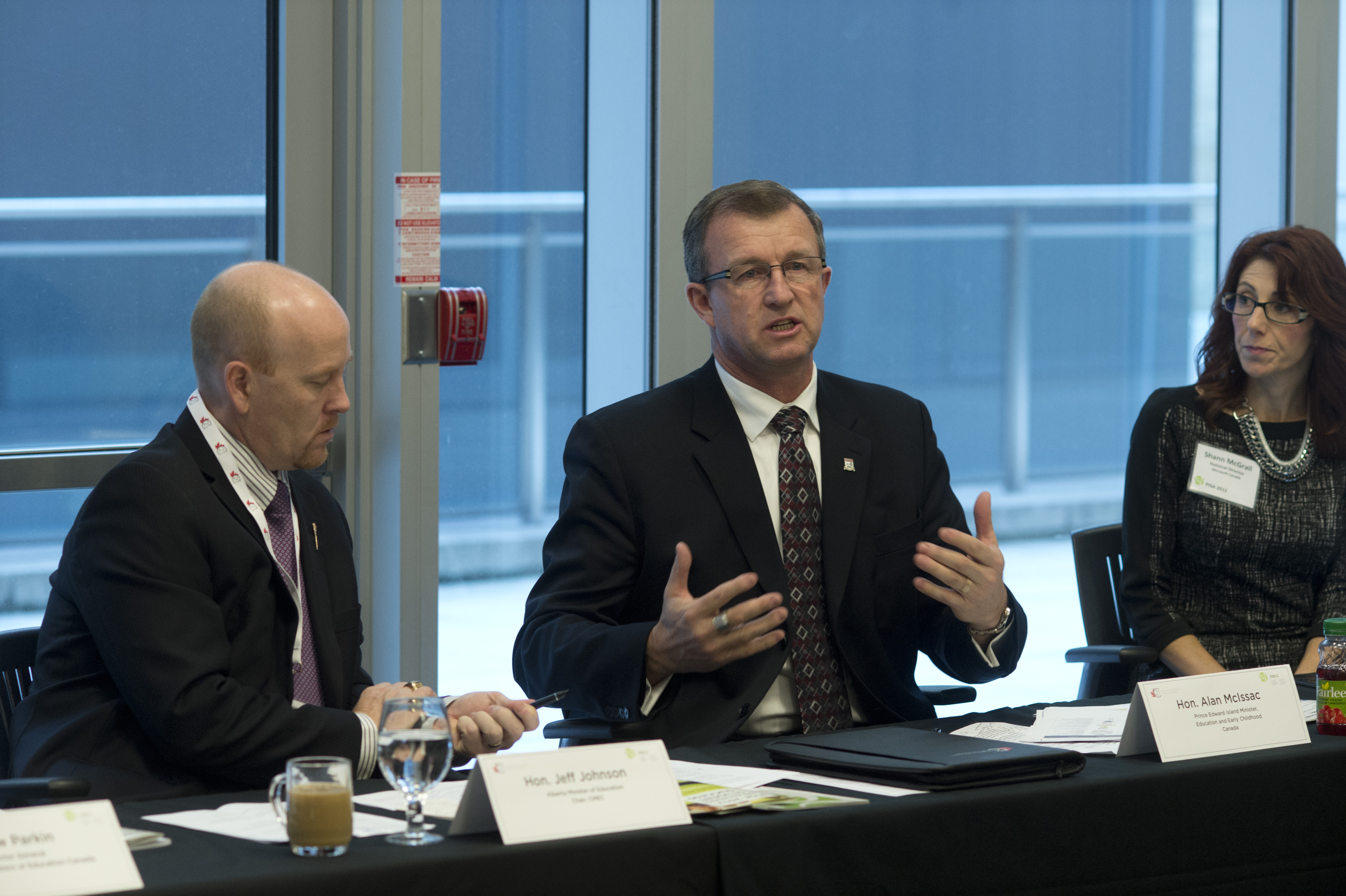
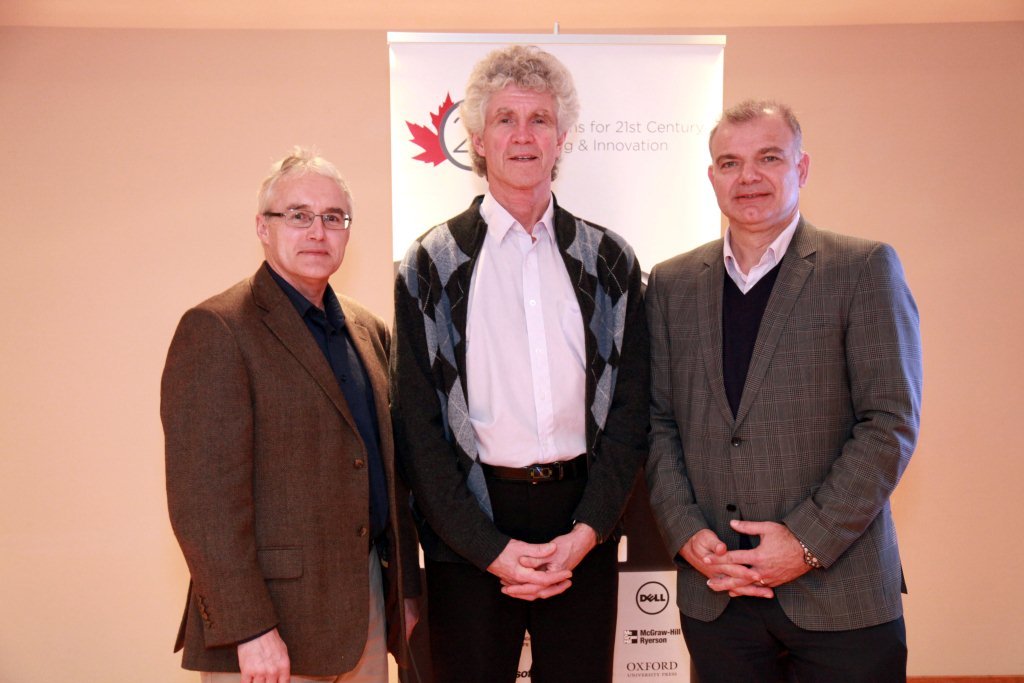
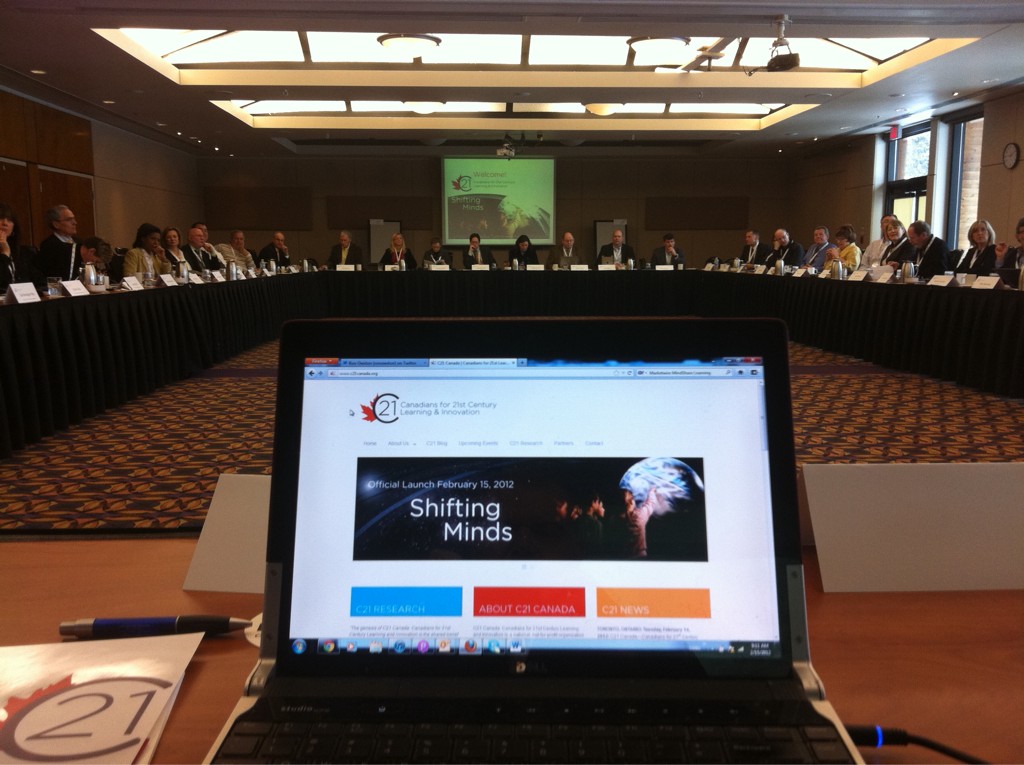
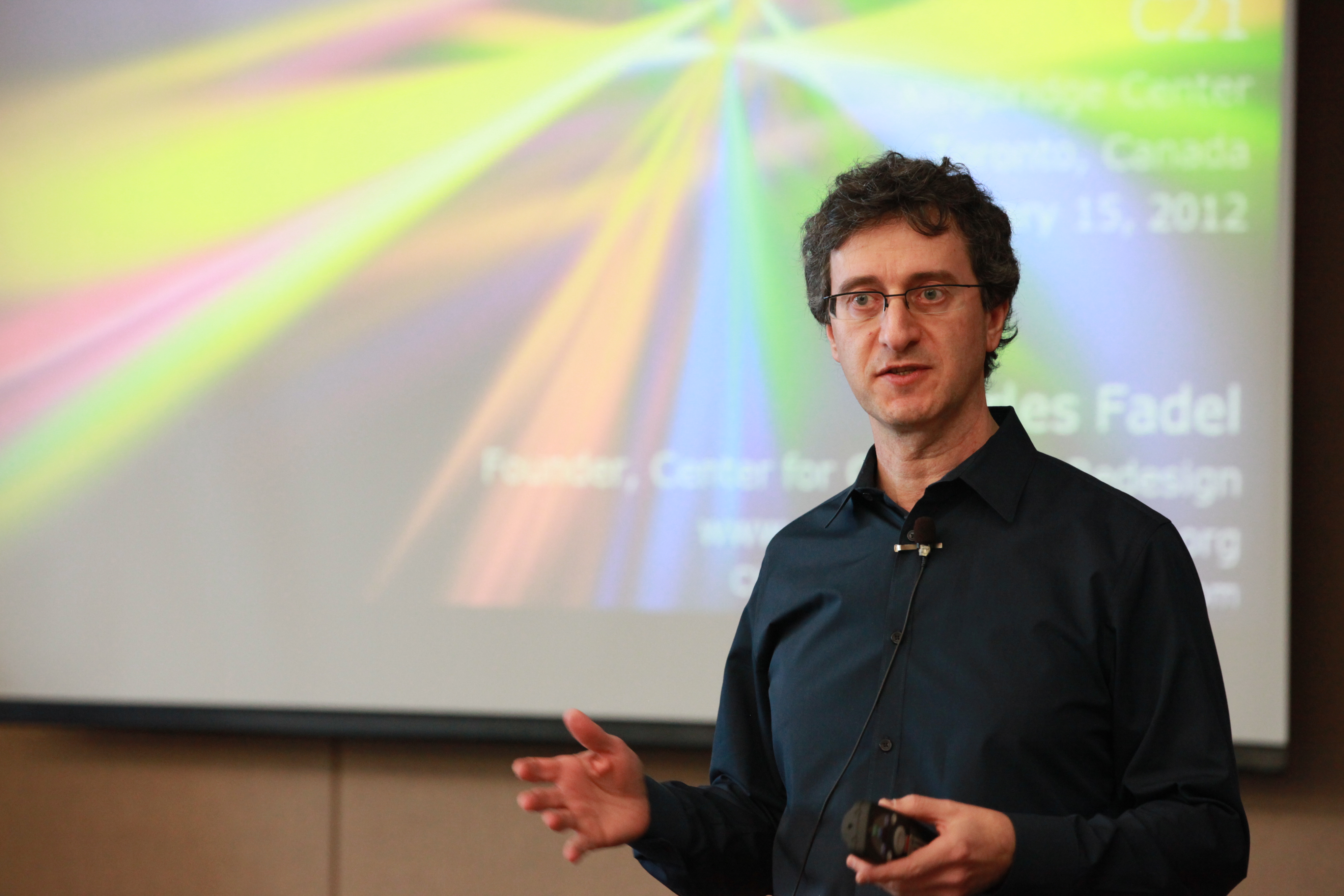
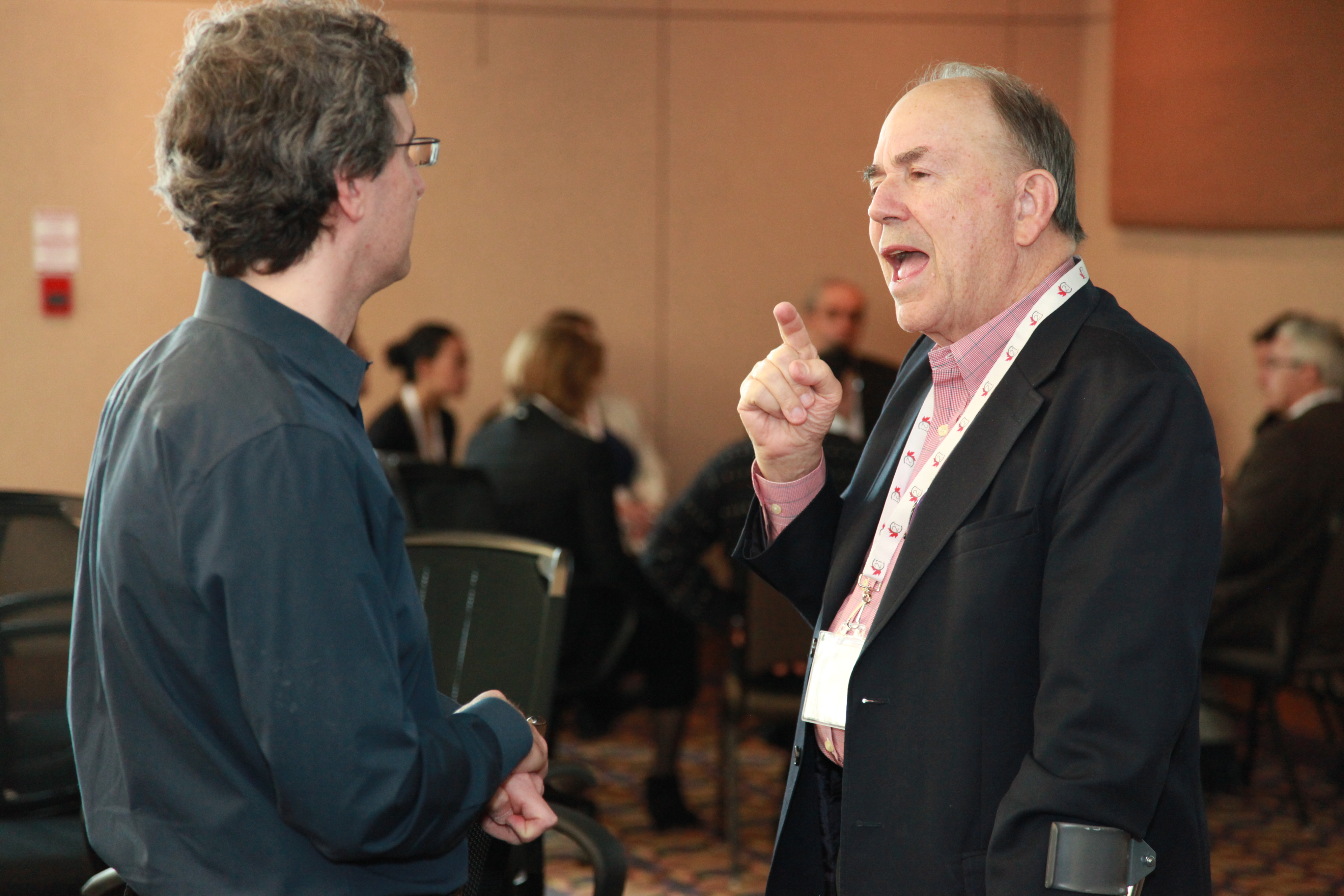
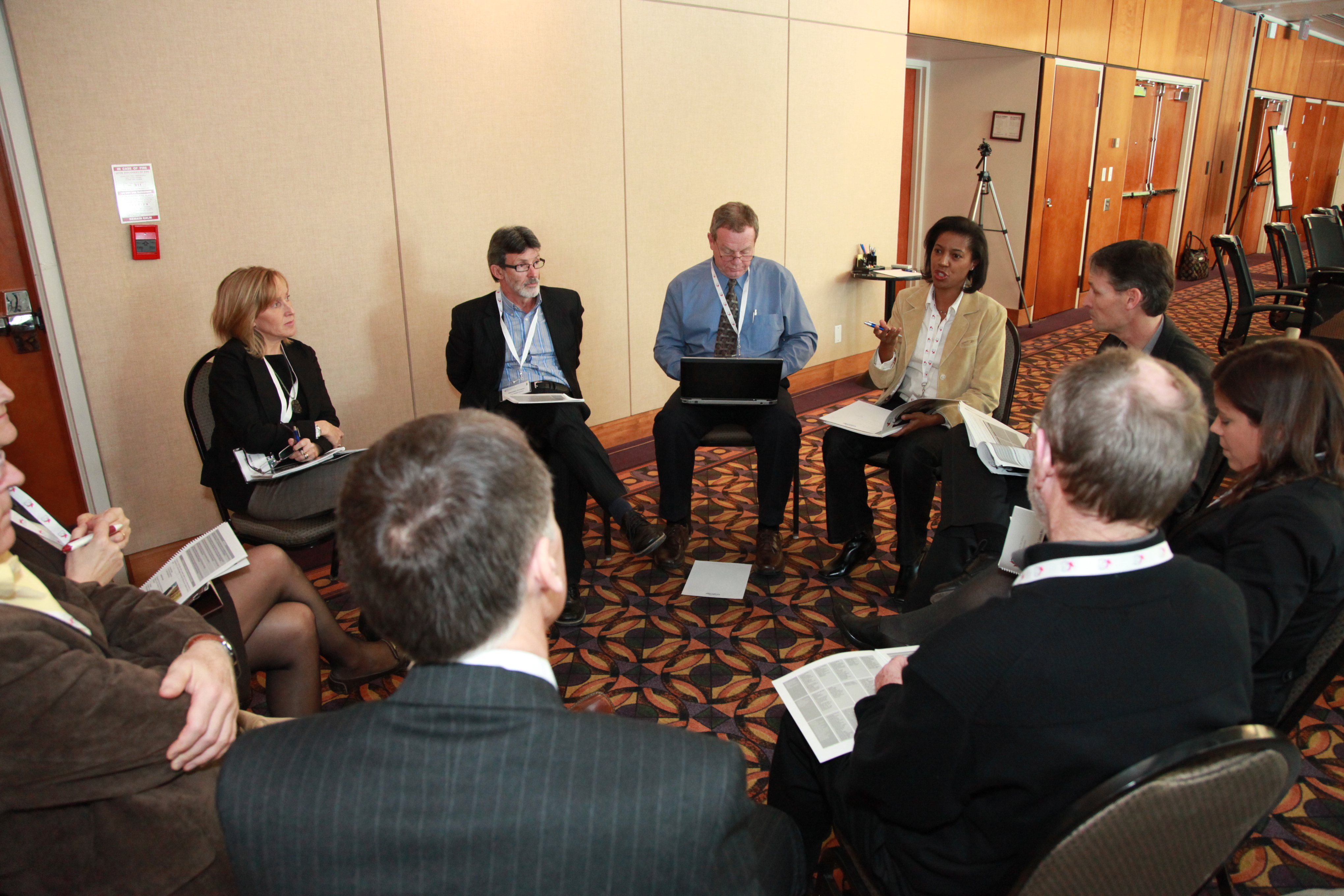
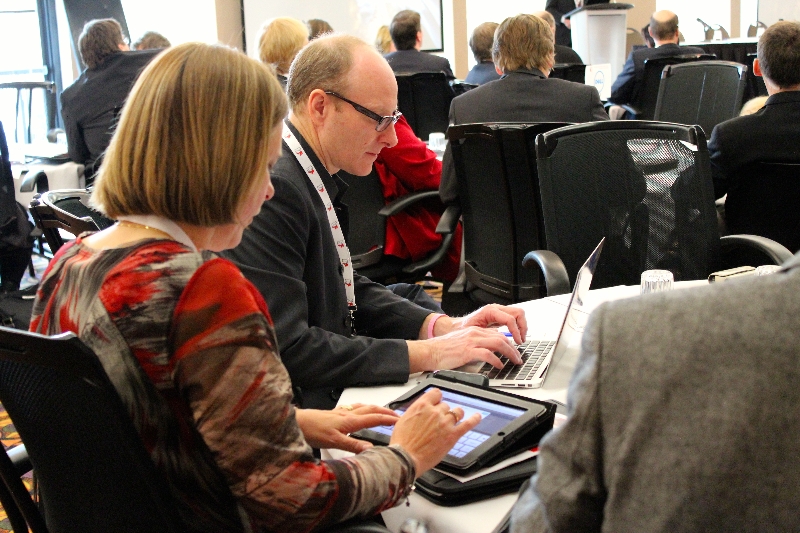
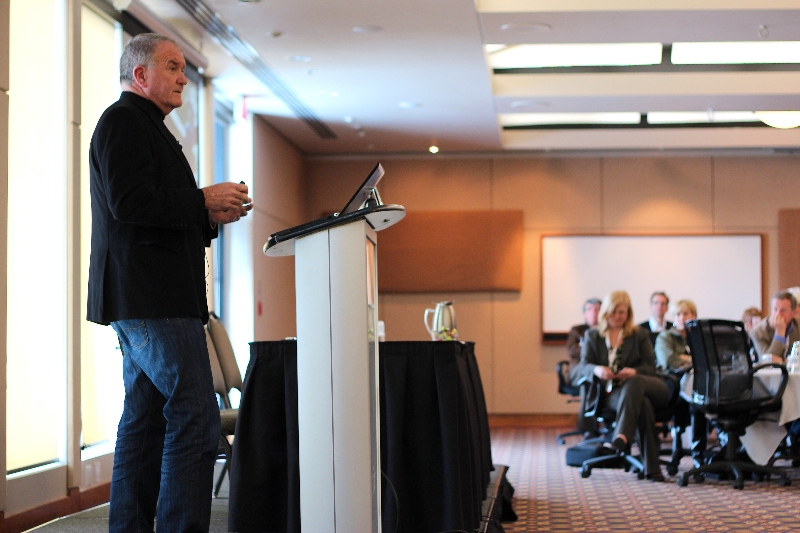
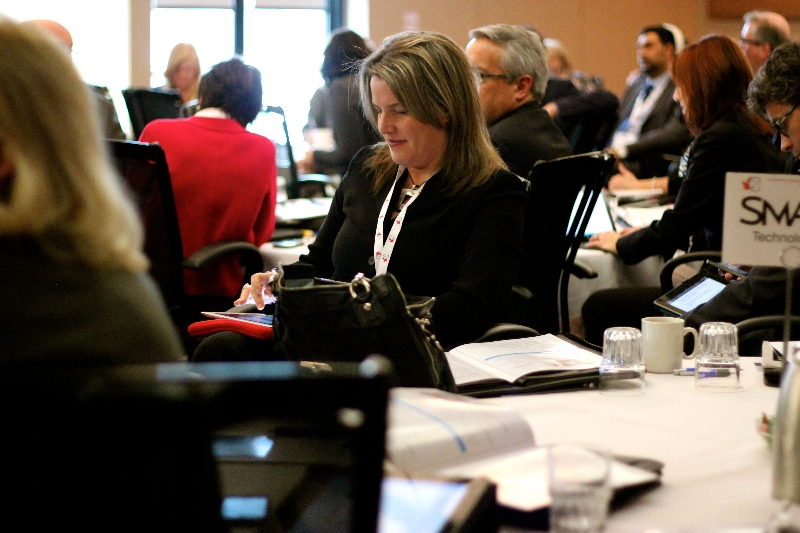
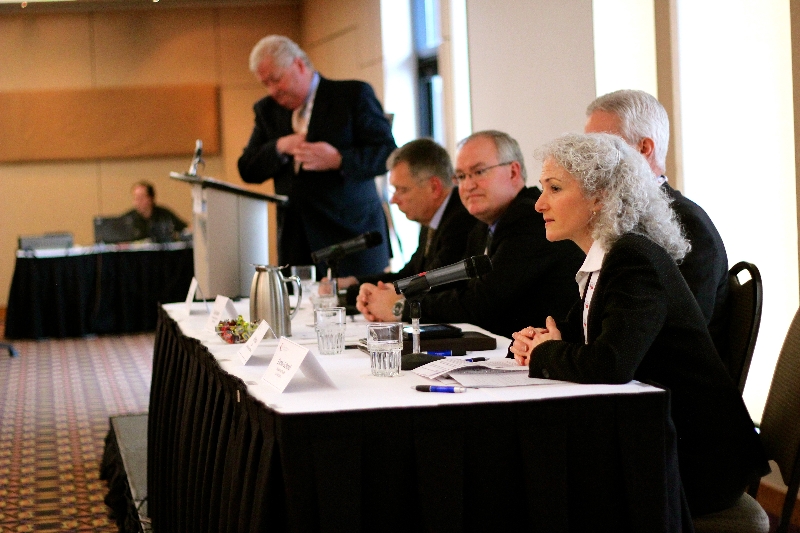
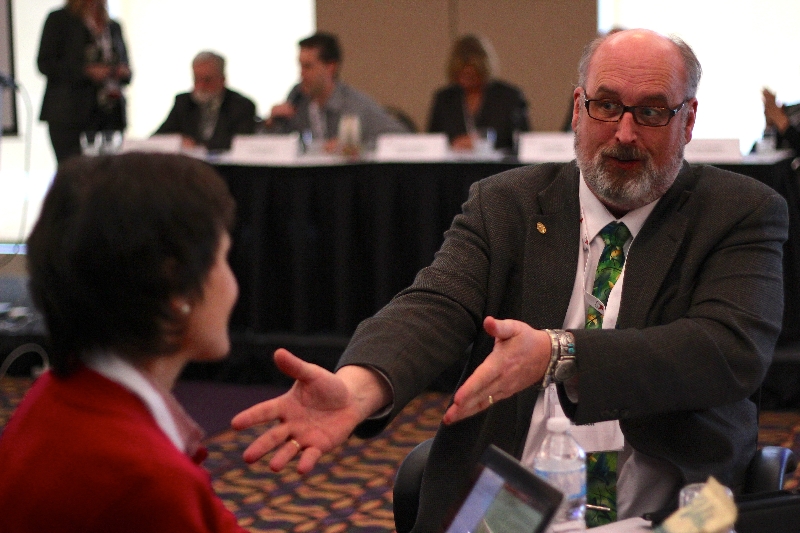
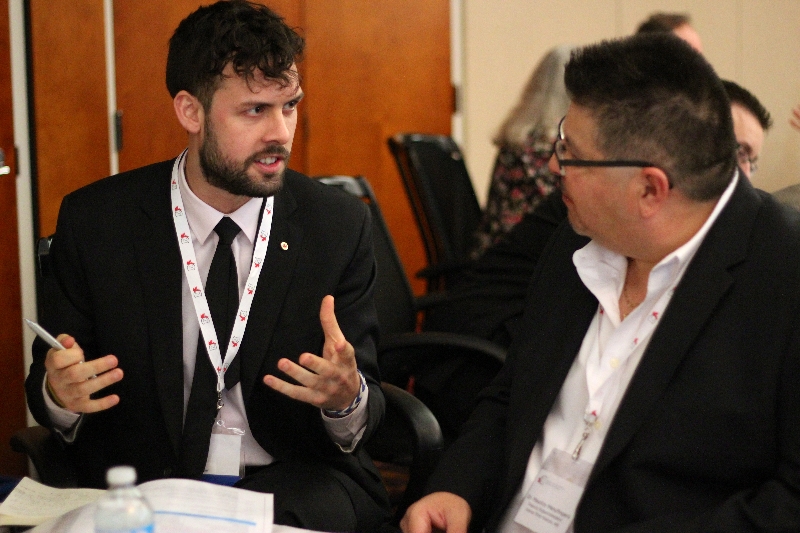
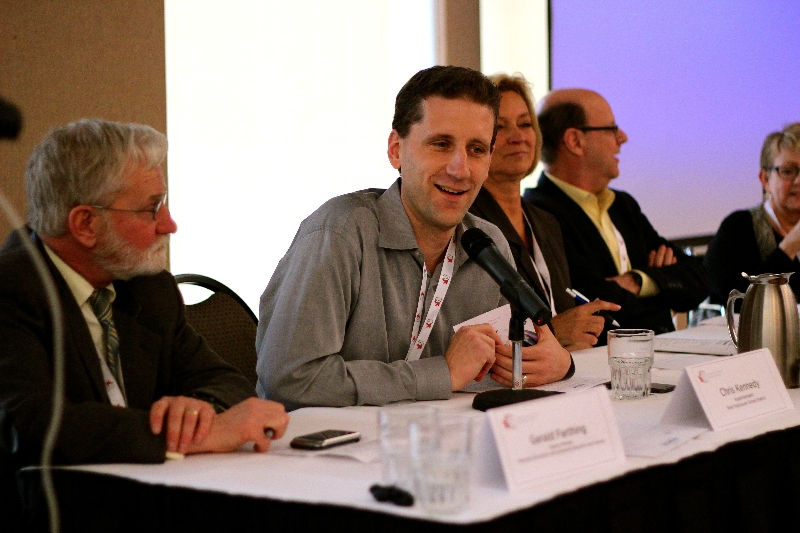
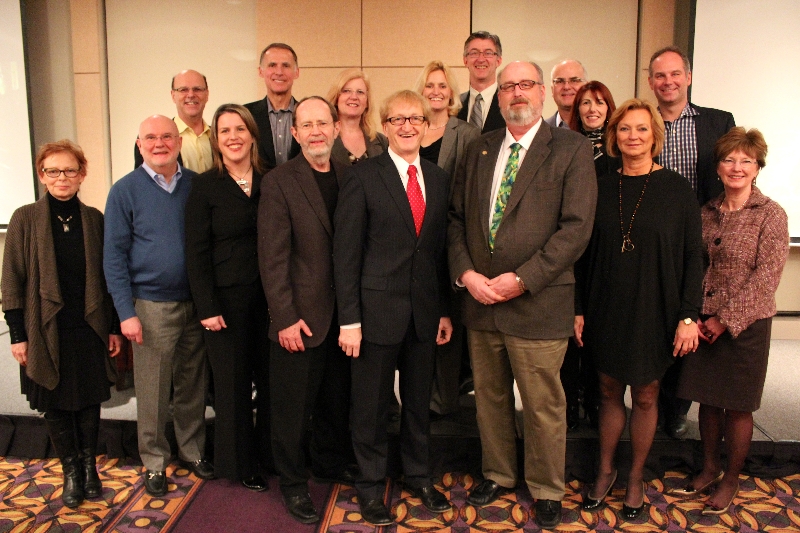
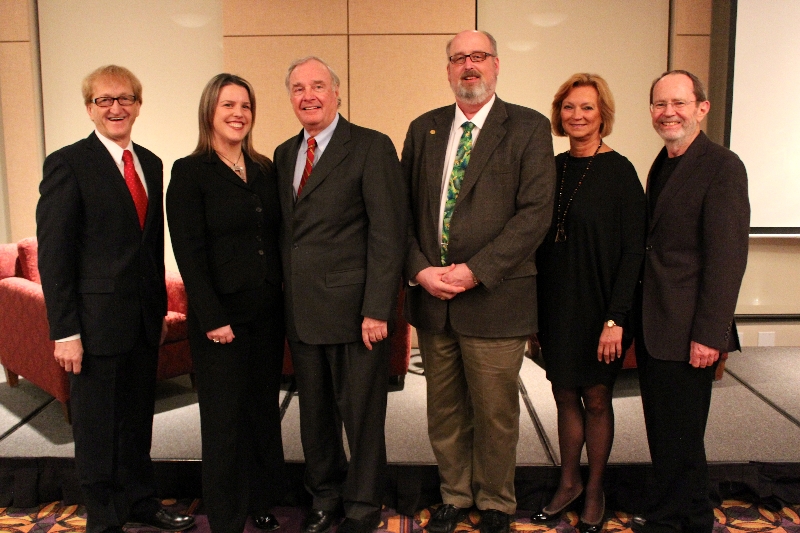
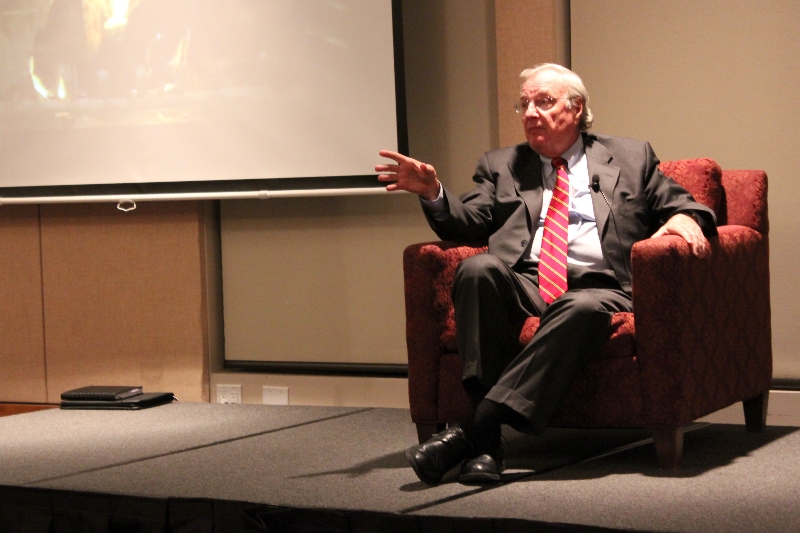
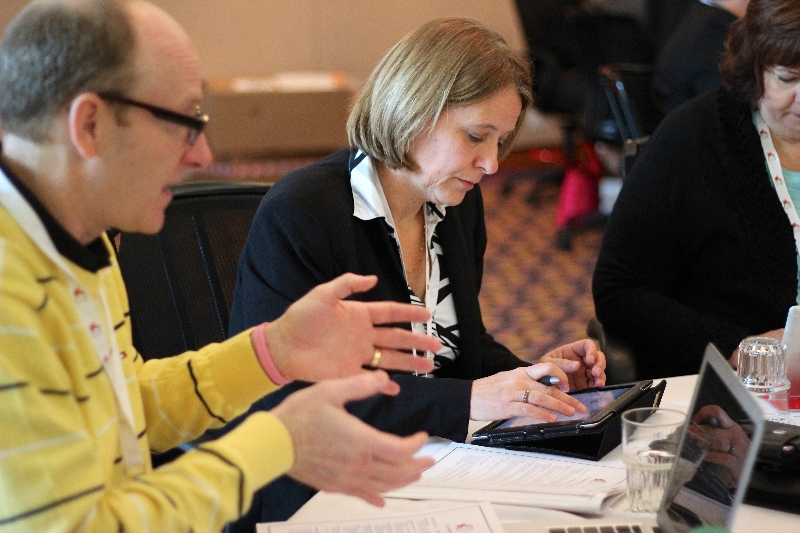
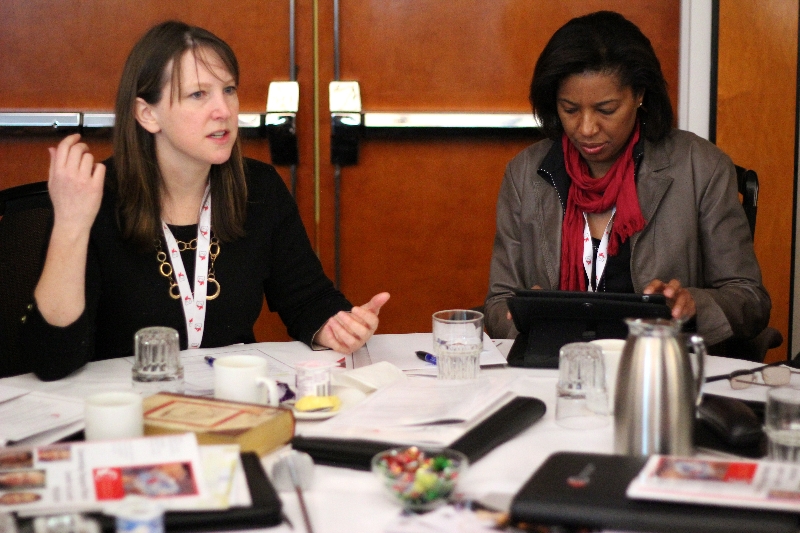
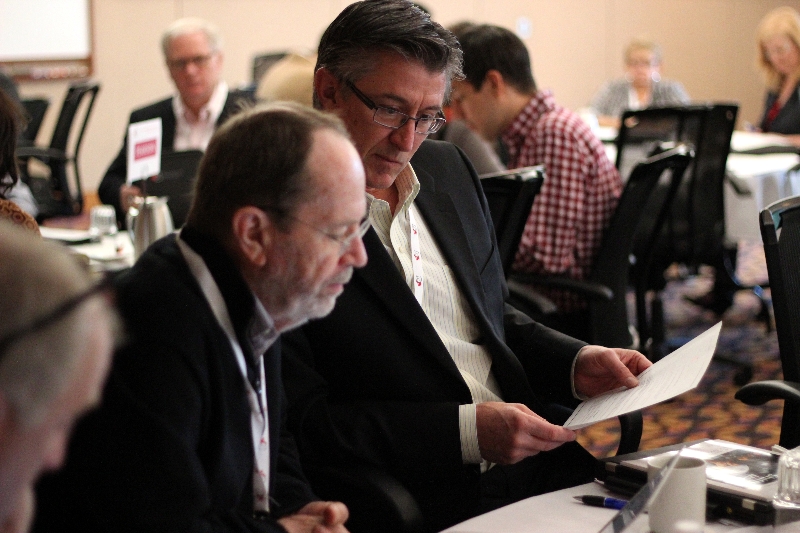
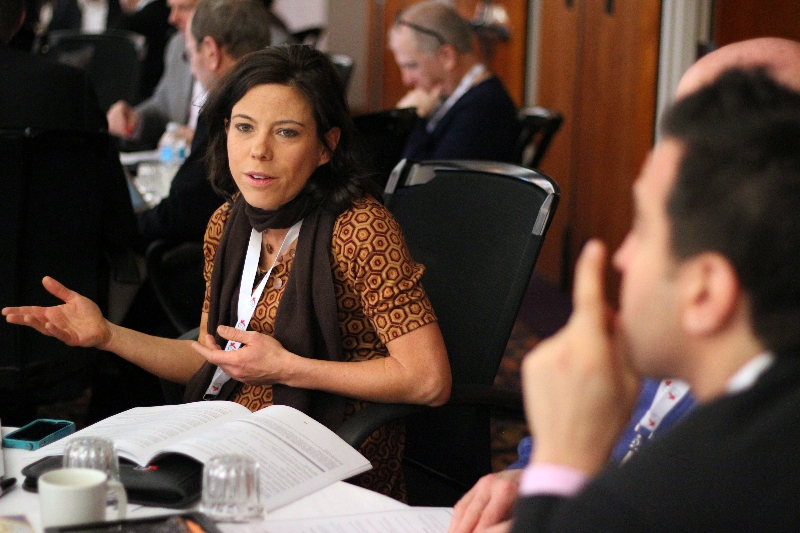
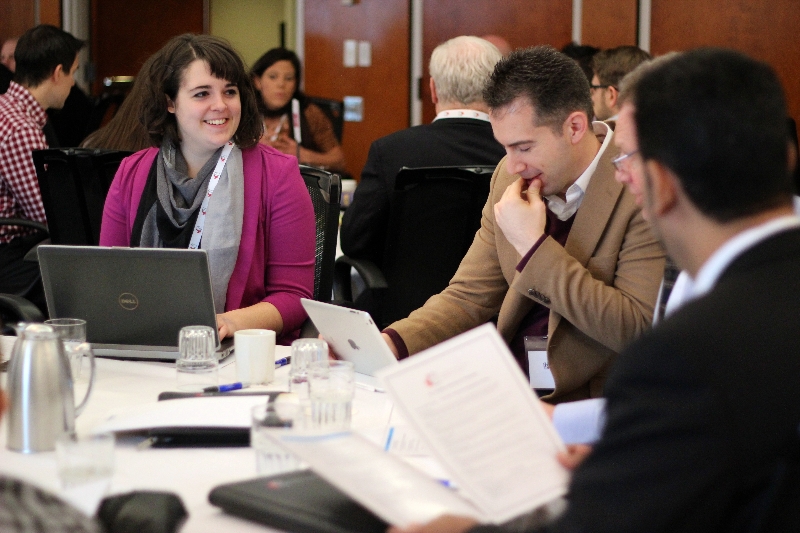
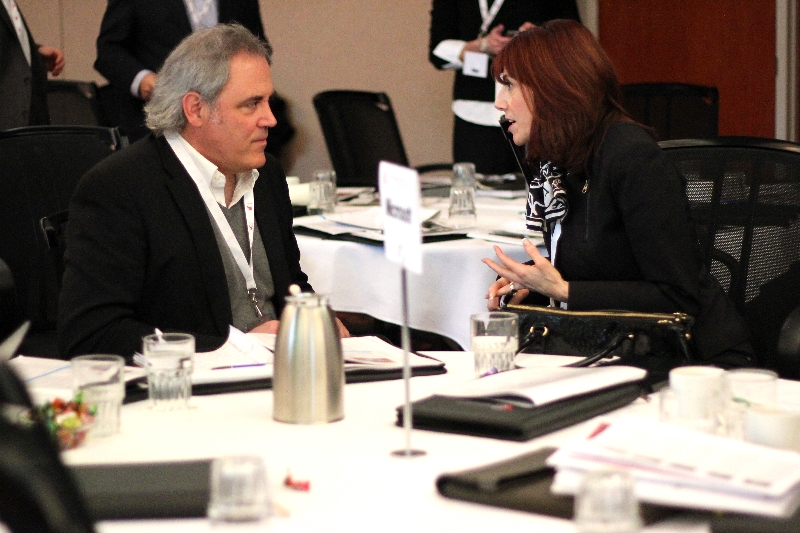
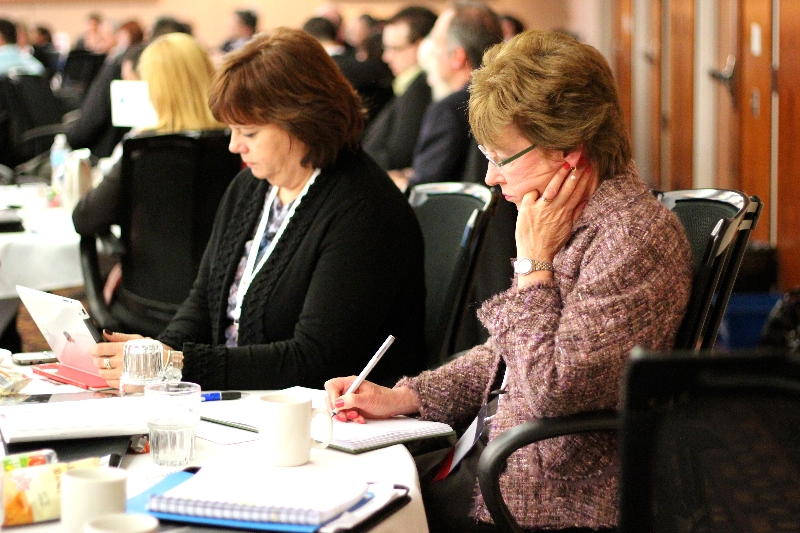
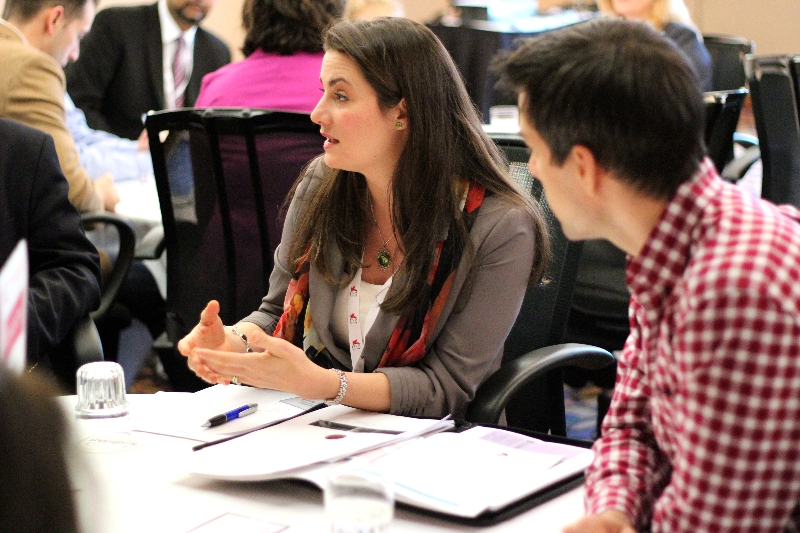
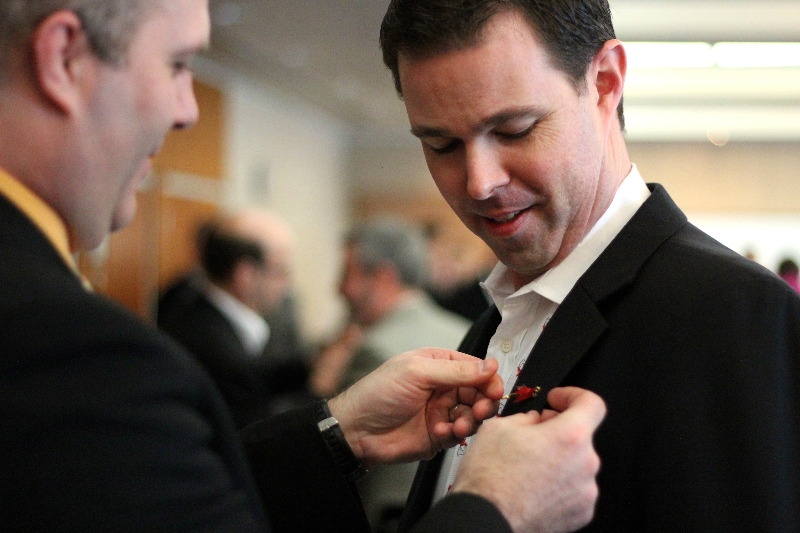
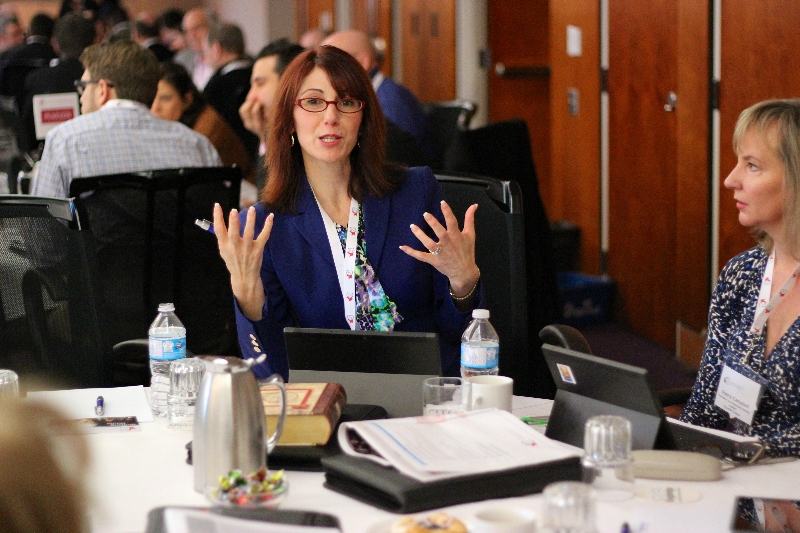
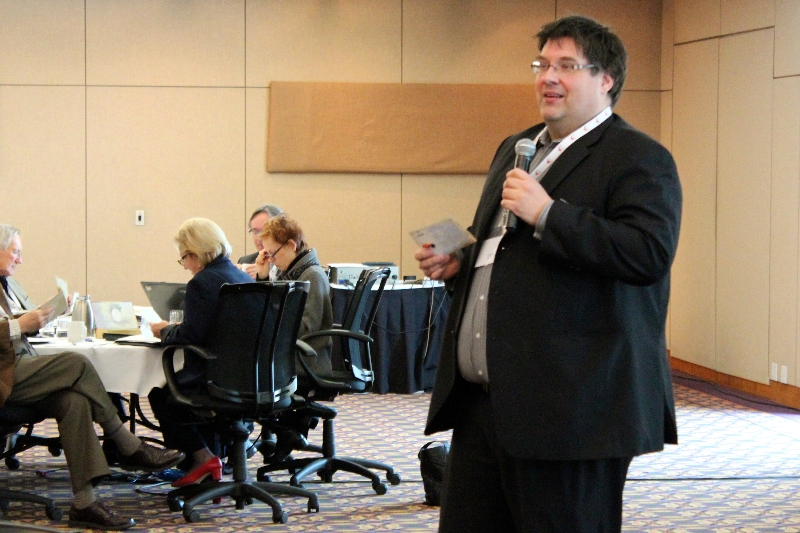
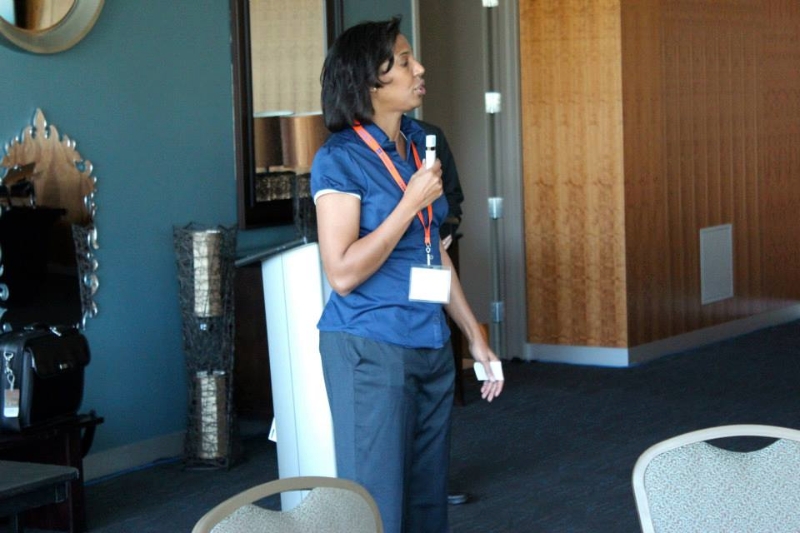
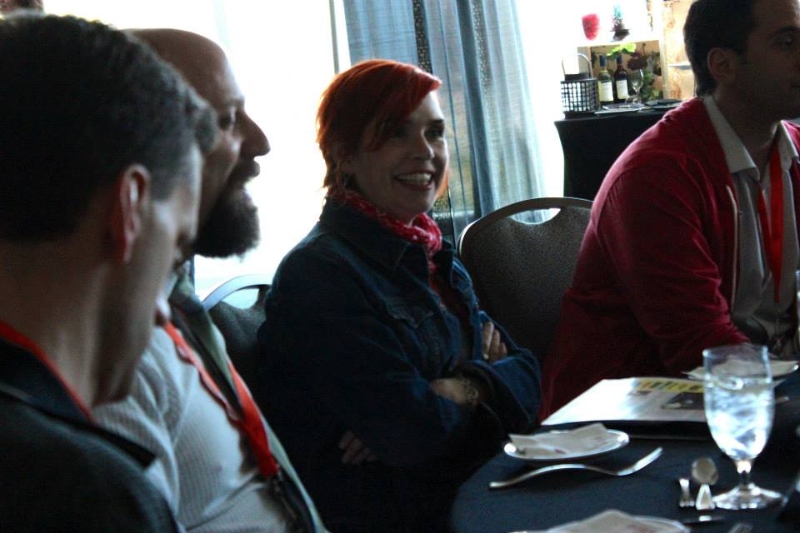
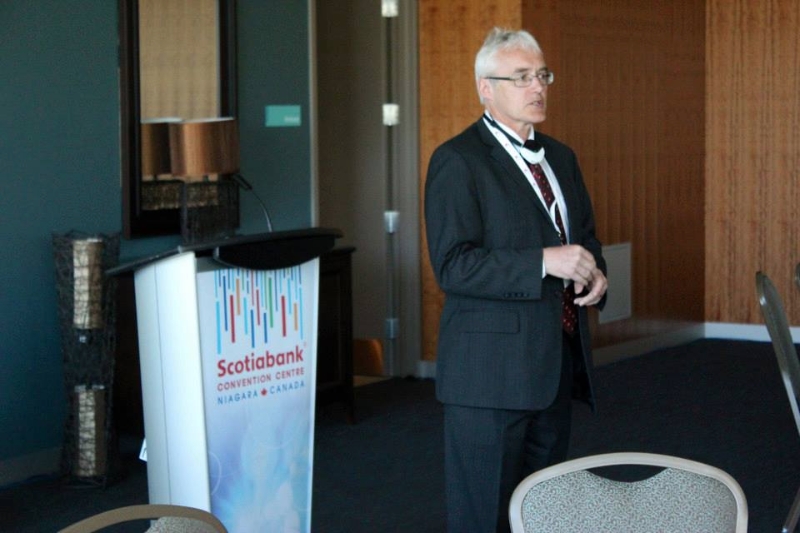
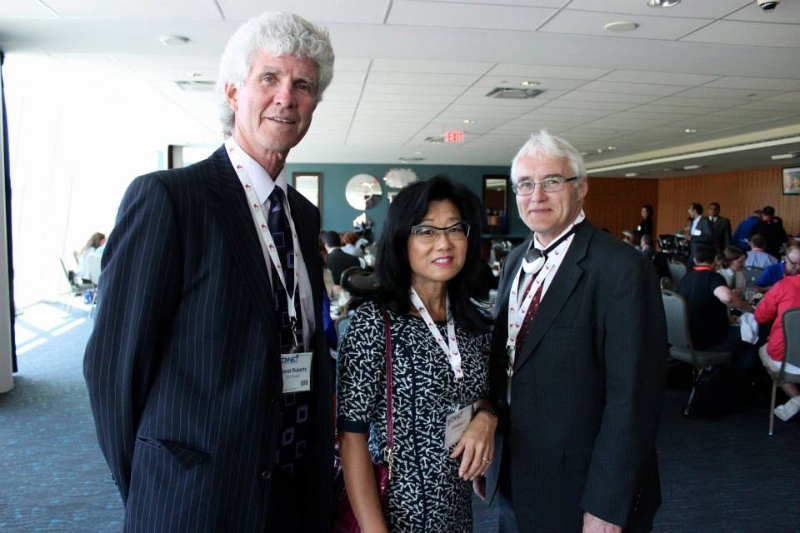
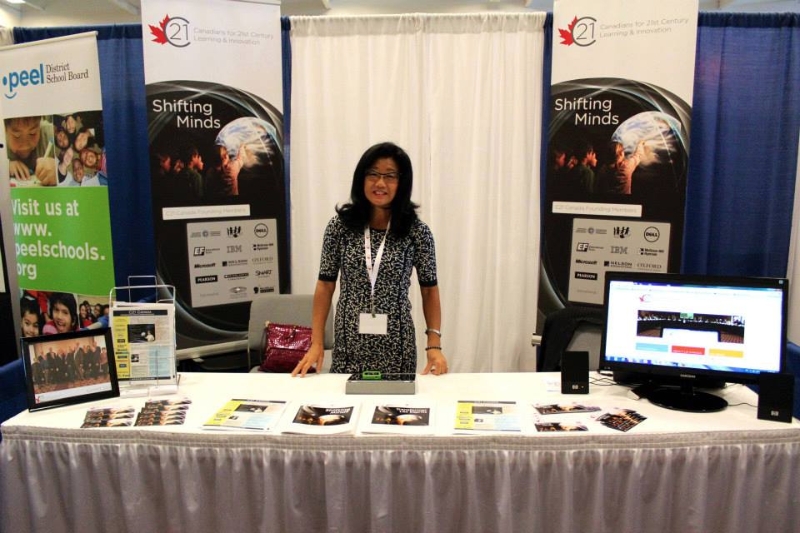
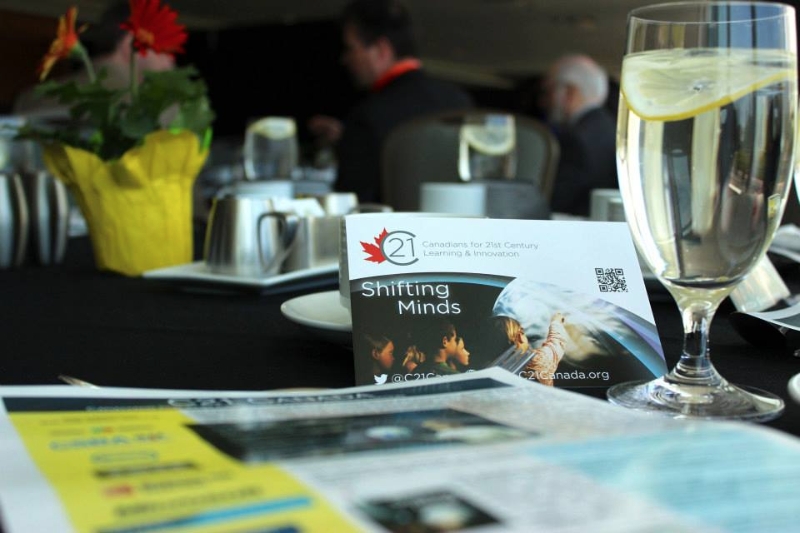
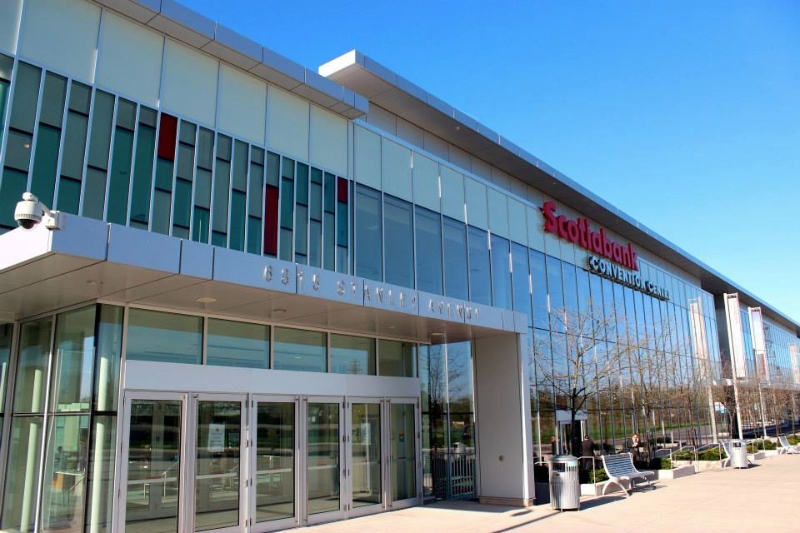
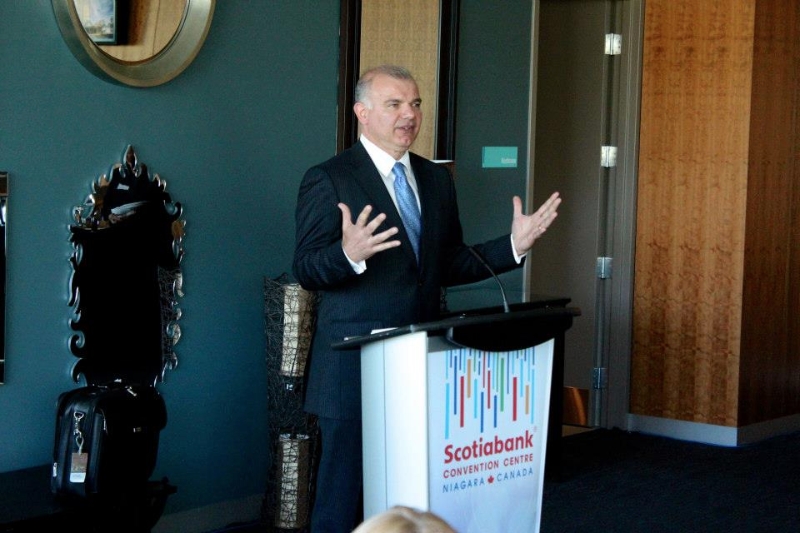
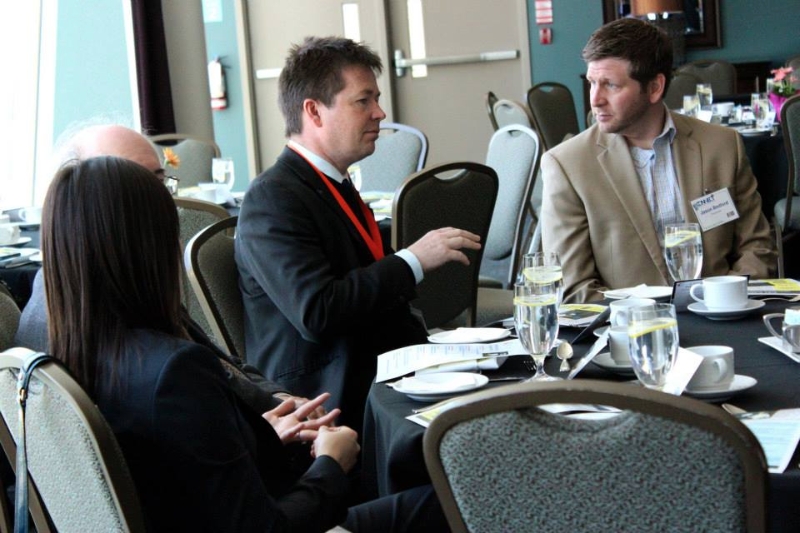
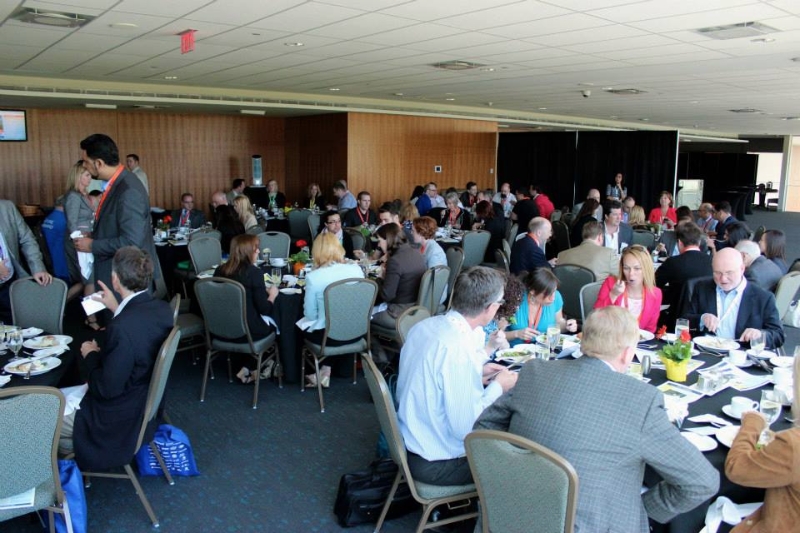
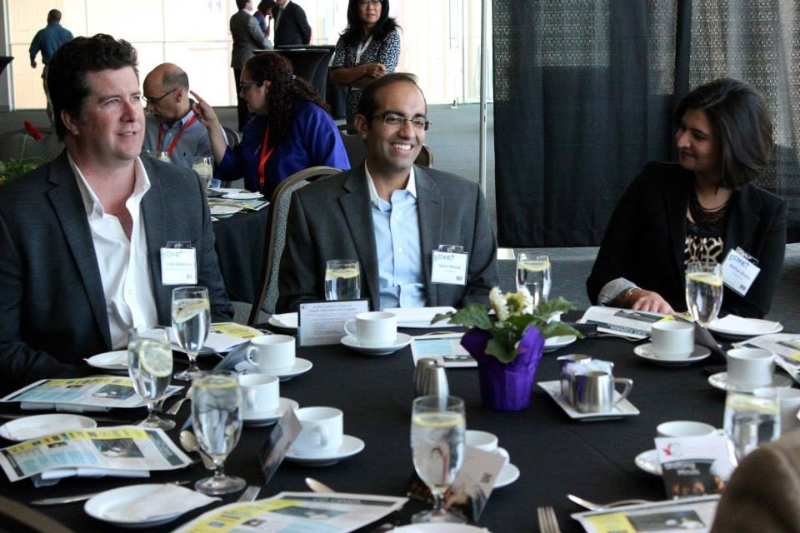

Feature Video
Recent Comments
- Kendra on Feedback
- There’s still time to get edreform right in Canada, and there’s still interest in doing so† on Changing Perspectives
- C21 Canada Interview with Naomi Johnson, Chief Superintendent of the Calgary Board of Education on Innovative educators honoured at 2nd Annual C21 Canada Summit
- sdenaultca on The Hunt for 21st Century Learning
- Tobey Steeves (@symphily) on Canada’s Skills Gap and the Federal Budget

